NAVIGATE CANCER



“Being recognized nationally for excellence is an important validation. That’s why I am delighted that Rutgers Cancer Institute of New Jersey together with RWJBarnabas Health achieved High Performing status in the adult specialty category for cancer in the most recent U.S. News & World Report Best Hospitals survey. This demonstrates the extraordinary, multidisciplinary care we provide for our communities, informed by groundbreaking cancer research, scientific leadership and transformational discoveries alongside exceptional patient experience.”
BARRY H. OSTROWSKY | Chief Executive Officer, RWJBarnabas Health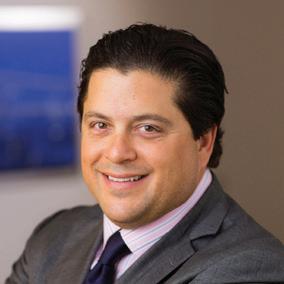
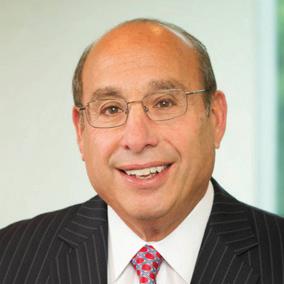
“As New Jersey’s largest and leading academic healthcare system, we pride ourselves on providing exceptional care for our communities together with our partners such as Rutgers Cancer Institute of New Jersey, the state’s only NCIDesignated Comprehensive Cancer Center. We congratulate Rutgers Cancer Institute on receiving the highest score in New Jersey in the adult specialty category for cancer in U.S. News & World Report’s annual Best Hospitals survey. This validates the exceptional level of cancer care we provide across our health system.”
MARK E. MANIGAN | President, RWJBarnabas Health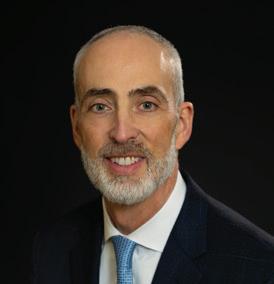
“At Monmouth Medical Center, we are very proud of our three most recent national recognitions of excellence. These include being among 148 U.S. hospitals named to the digital platform Money’s inaugural list of the Best Hospitals in America and one of 34 U.S. hospitals honored by the Emergency Nurses Association with the 2022–2025 Lantern Award for excellence in emergency care. Additionally, for the seventh consecutive year, we have been honored by Healthgrades for excellence in women’s care.”
300 Second Avenue, Long Branch, NJ 07740 | 732.222.5200
WITH US ON
Monmouth Medical Center complies with applicable federal civil rights laws and does not discriminate on the basis of race, color, national origin, age, disability, or sex. For more information, see link on our home page at www.rwjbh.org/monmouth. Monmouth Medical Center cumple con las leyes federales de derechos civiles aplicables y no discrimina por motivos de raza, color, nacionalidad, edad, discapacidad o sexo.
ATENCIÓN: Si usted habla español, servicios de asistencia lingüística, de forma gratuita, están disponibles para usted. Llame al 732.222.5200. Monmouth Medical Center konfòm ak lwa sou dwa sivil federal ki aplikab yo e li pa fè diskriminasyon sou baz ras, koulè, peyi orijin, laj, enfimite oswa sèks. ATANSYON: Si w pale Kreyòl Ayisyen, gen sèvis èd pou lang ki disponib gratis pou ou. Rele 732.222.5200.
For issues regarding delivery of Healthy Together, please write to HTcirculation@wainscotmedia.com.
Monmouth Medical Center (MMC) is one of 34 U.S. hospitals to be honored by the Emergency Nurses Association (ENA) with the organization’s Lantern Award, which recognizes emergency departments (EDs) that demonstrate exceptional and innovative performance in leadership, practice, education, advocacy and research.
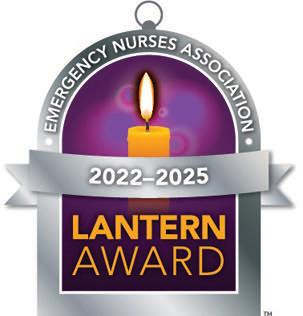
The award application considers factors including collaborative approaches to delivering optimal care, outcome metrics and characteristics of the nursing team and facility, along with ED demographics and commitment to quality, safety and a healthy work environment.
In 2021, MMC’s ED also received the Crisis Response Team Award from ENA’s New Jersey chapter in recognition of significant contributions and response to challenges stemming from the COVID-19 pandemic.
The digital platform Money recently announced its inaugural list of Best Hospitals in America, with MMC among just 148 U.S. hospitals to receive the award. Created in partnership with The Leapfrog Group, a national watchdog organization focused on healthcare safety and quality, the list identifies hospitals that consistently deliver the safest, highest-value care and excellence in hospital experience.
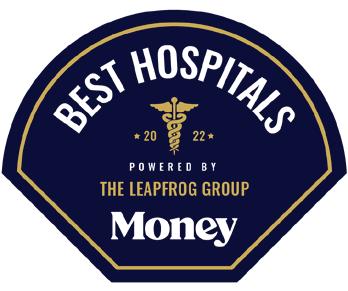
Criteria heavily weighted in the selection process included infection rates, maternity care, pediatrics, medication management, hand hygiene practices, nursing workforce and critical care. Leapfrog also tracked the number of high-risk surgeries. The award came on the heels of MMC recently receiving its 15th consecutive Leapfrog “A” rating and a third Leapfrog recognition as a Top Teaching Hospital.
Monmouth Medical Center has been recognized by Healthgrades for excellence in women’s care, receiving the 2022 Obstetrics and Gynecology Excellence Award and Labor and Delivery Excellence Award. MMC has received these Healthgrades distinctions for seven consecutive years and ranks among the top 5 percent of hospitals evaluated for both obstetrics/ gynecology and labor/delivery.
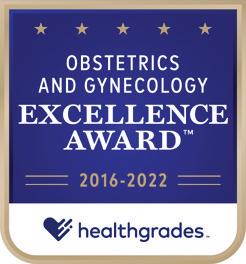
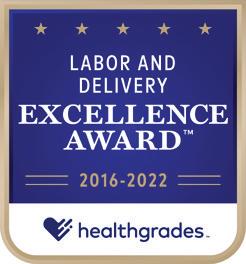
2. WELCOME LETTER. A community update from our leadership.
4. CHRONIC PAIN NO MORE. Patients find relief with spine surgery.
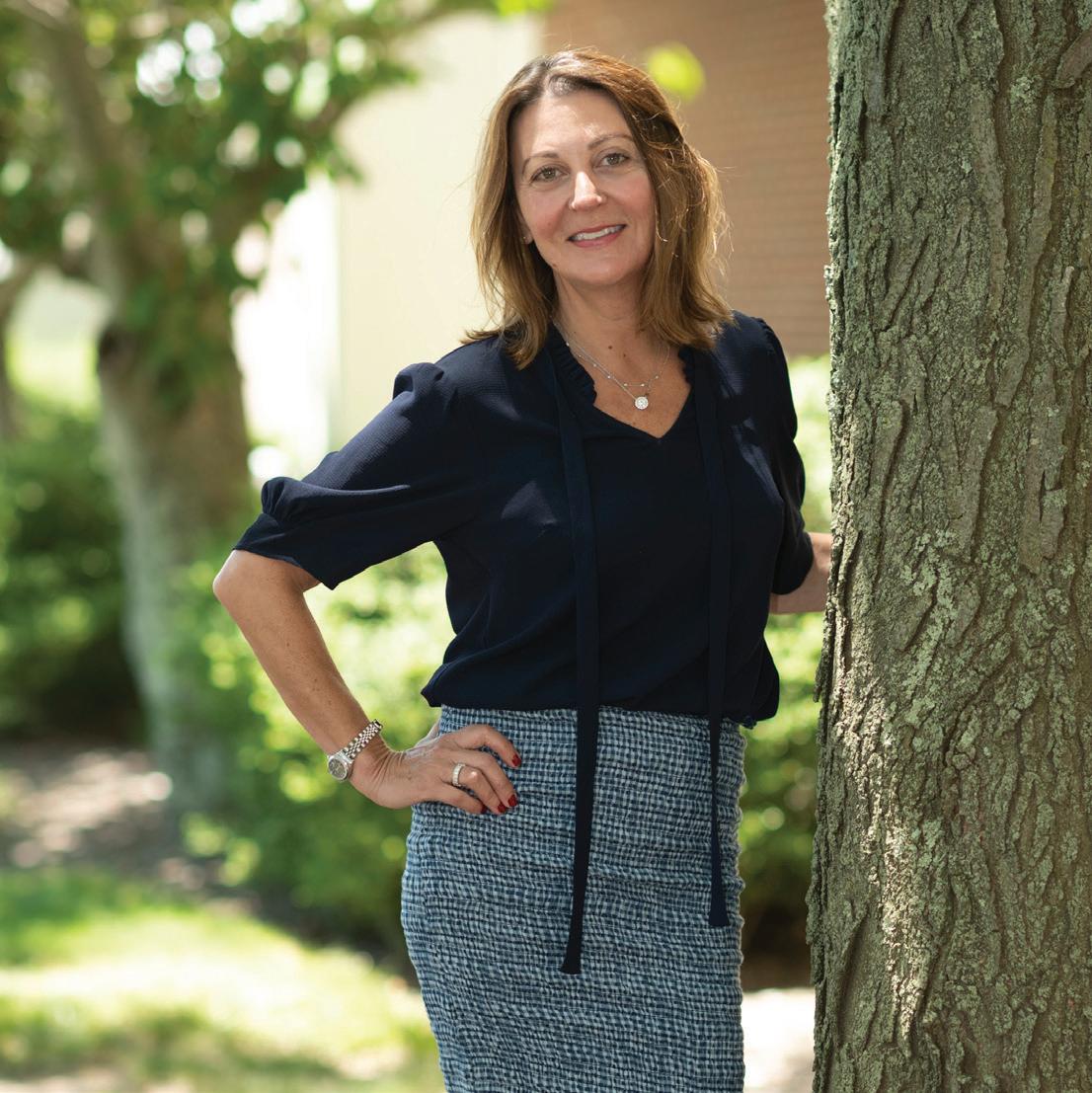
6. BENEFITING FROM CLINICAL TRIALS. Why participating is important to two patients.
8. SEEING THROUGH AN ANGEL EYE. Upgraded technology helps parents monitor babies in intensive care.
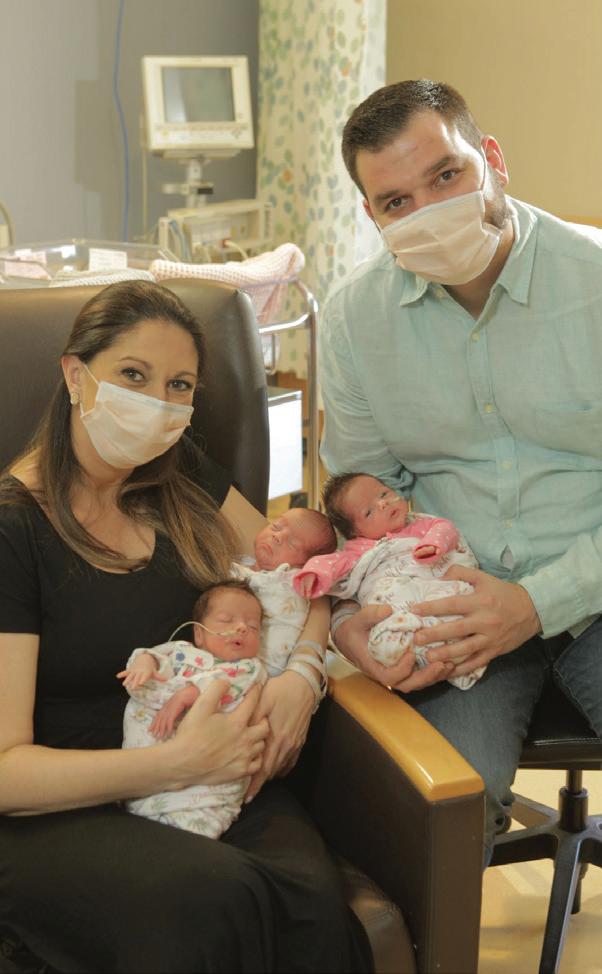
10. COPING WITH HOLIDAY DEPRESSION. How to move through the melancholy that often comes with the holidays.
12. NAVIGATING YOUR CANCER JOURNEY. RWJBH’s Nurse Navigation Program provides support, guidance and compassion.
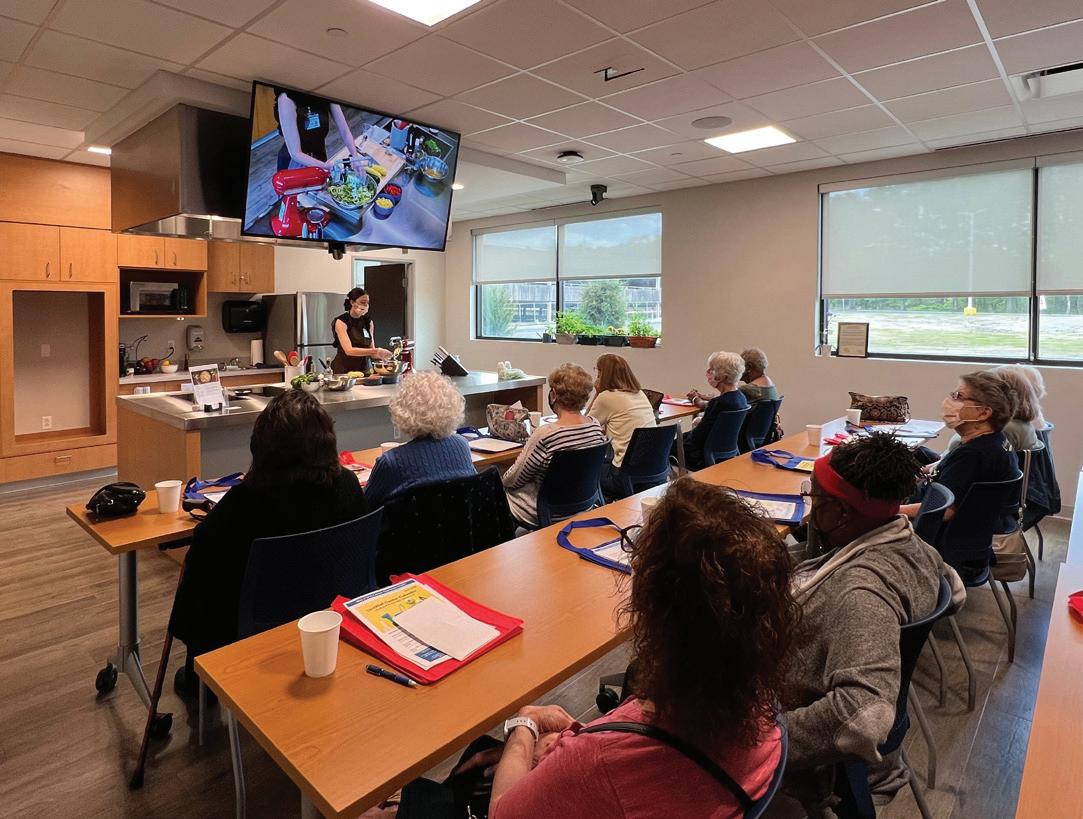
14. ONE STEP AT A TIME. How the physical therapy team at Children’s Specialized Hospital helped a boy with spina bifida.
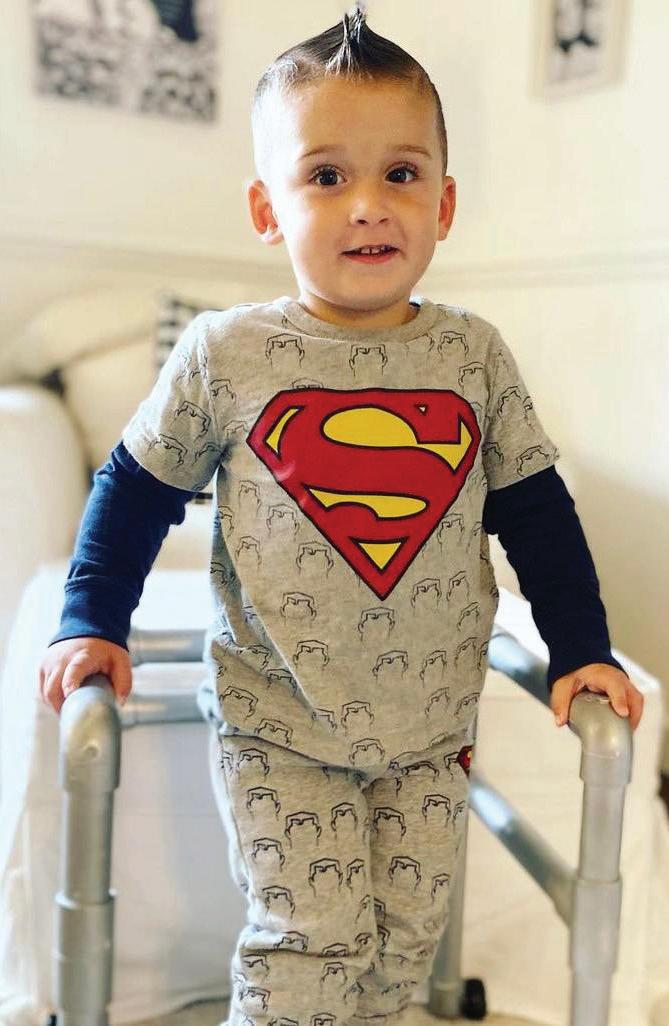
16. THE LOWDOWN ON LOWDOSE ASPIRIN. The latest guidelines for heart attack and stroke prevention.
17. HONORING A LEGACY. A partnership highlights “Black Firsts in Medicine.”
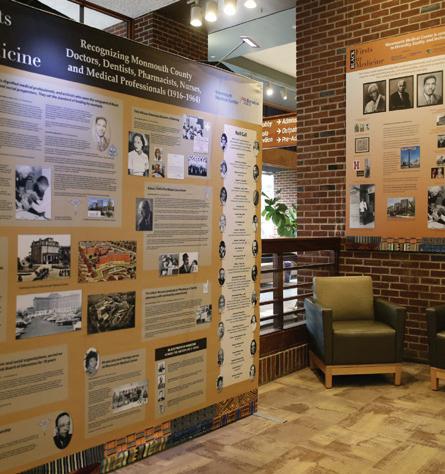
18. PARTNERING FOR MOTHERHOOD SUCCESS. Steps that foster health for mothers and babies.
20. HEALING A SURGEON’S HAND. Specialized care keeps a doctor working after an injury.
21. A PATH TO BETTER HEALTH. Join this free membership program.
22. CURBING LYMPHEDEMA. Controlling a cancer treatment side effect.
23. BRIDGING GAPS. A program improves access to care for Chinese patients.
The spine is a marvel of anatomy, with an intricate mix of stacked bones called vertebrae, disks between them for cushioning, and a tunnel-like spinal column that allows the spinal cord and nerves to run through the backbone.
When problems arise in the spine, conditions that result can be both painful and debilitating—but also complex, requiring a multidisciplinary approach to care.
That’s why the Spine Center at Monmouth Medical Center (MMC) has a team of skilled surgeons well versed in both orthopedics and neurology who handle a wide range of cases involving the back and neck.
“We’re capable of offering patients the full gamut of spine care, from conservative to surgical treatments, right here in Monmouth County,” says Jason Cohen, MD, Chair of Orthopedic Surgery at MMC. “We have a stateof-the-art facility and tools, and all of our providers are fellowship-trained at leading institutions across the country. We also have residency training programs, so we’re teaching young physicians what we do.”
The hospital offers both traditional and minimally invasive surgeries, including computer-guided procedures that help minimize complications and
often provide better outcomes for patients.
“It’s a very robust service,” says Jonathan Lustgarten, MD, Chief of Neurosurgery at MMC. “Both orthopedic surgery and neurosurgery cover a broad spectrum of common spine problems, and both are characterized by a high degree of innovation. In fact, the neurosurgical spine service at MMC introduced New Jersey’s first intraoperative CT-scan computer navigation system for minimally invasive spine surgery and has the most extensive experience in the state with this technology.”
Patients often appreciate not having to travel to New York or Philadelphia for procedures. “We offer the same care, if not better, with more one-to-one interactions with our patients,” Dr. Cohen says.

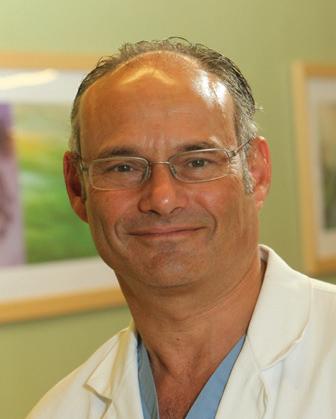
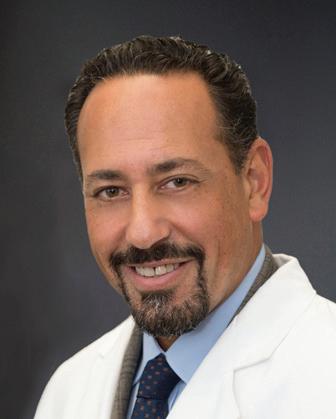
These two patients say they benefited from such advanced, personalized care for different types of problems.
Maria Caputo’s neck had bothered her ever since her car was rear-ended on the New Jersey Turnpike more than 20 years ago.
“I had chronic pain every day, and I just dealt with it by trying different pain management techniques,” says Caputo, 50, who lives in Rumson and works as Director of Government Relations at MMC. Approaches she sought for relief included physical therapy, epidural injections, trigger point injections, chiropractic, acupuncture, back massagers and anti-inflammatory medications such as ibuprofen. None of them fully resolved her pain.
In fall 2021, the pain finally became too much. She consulted Dr. Cohen, who
JASON COHEN, MD JONATHAN LUSTGARTEN, MD•
Vertebrae,
•
•
•
•
ordered an MRI scan. It revealed she had four collapsed disks in her spine along with bone degeneration from arthritis.
Caputo had been putting off surgery. Now she felt she was out of options. She scheduled a procedure to remove the damaged disks and ease pressure on her spinal cord, then build her spine back with an implant filled with bone graft to fuse the spine together.

After undergoing the procedure in January 2022 at MMC, she underwent physical therapy for a few months to regain movement and strength.
Today, Caputo feels fabulous. “My neck doesn’t hurt anymore,” she says. “It’s amazing, because I had resigned myself to always having chronic pain.”
Donald Grohowski knew it was time for back surgery when he could no longer participate in his favorite retirement pastime.
“I like to play golf,” says Grohowski, 75, who lives in Point Pleasant. “But it was getting to the point where I couldn’t do that anymore. I had so much lower-back pain that I was loading up on pain pills before I started playing.” Pain also flared up during other types of exertion, like mowing the lawn or walking longer distances.

Increasingly, taking medication wasn’t enough. Physical therapy didn’t help, either. As a result, Grohowski went for a
consultation at MMC’s Spine Center, where he was diagnosed with a herniated disk and spinal stenosis, a condition in which a narrowing of the spinal canal puts pressure on nerves.
Grohowski decided to undergo surgery in November 2021. Dr. Lustgarten cleaned up the damage in his back and performed a lumbar fusion to build up and strengthen the spine. Grohowski underwent a few weeks of rehabilitation afterward.
He’s now happy to be back in action on the golf course. In fact, he’s feeling so much better that he often plays twice a week. “I can play 18 holes and have absolutely no pain afterward,” he says.
Clinical trials allow patients like Beth Lynch to potentially receive the latest cancer therapies and contribute to medical advances.
Clinical trials can provide hope for those facing a cancer diagnosis.
RWJBarnabas Health (RWJBH), in partnership with Rutgers Cancer Institute of New Jersey—the state’s only National Cancer Institute-Designated Comprehensive Cancer Center—currently offers more than 200 clinical trials. These research initiatives study or test new medications, interventions and practices that may help control symptoms and side effects, in some cases investigating new ways of using available drugs.
Clinical trials offer patients a number of advantages. “When a patient enrolls, they’re not just joining forces with one doctor doing research on the latest treatments,” says Seth Cohen, MD, Regional Medical Director of Oncology Services, RWJBH Southern Region, and a member of RWJBarnabas Health Medical Group. “The patient actually gets an additional team of top doctors and nurses following their care in various ways.”
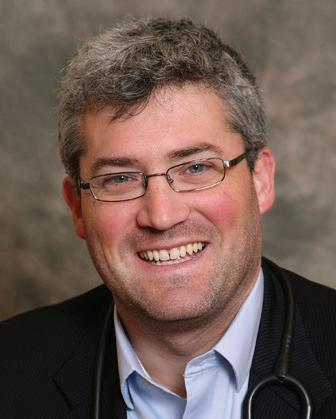
Patients may also receive new therapies that earlier research has shown to be appropriate for clinical use but are not yet broadly available. “You’re getting the benefit of cutting-edge research in advance of the general population,” says Trishala Meghal, MD, a medical oncologist at Monmouth Medical Center (MMC) and Monmouth Medical Center Southern Campus (MMCSC), and a member of RWJBarnabas Health Medical Group.

There’s another benefit as well: Participants play a meaningful role in improving cancer care for other patients. Two patients who took part in different clinical trials explain how their participation gives them hope for their diagnosis—and the future of medicine.
Around the time she turned 40 in 2021, Beth Lynch, Chief Executive Officer at Encompass Health Rehabilitation
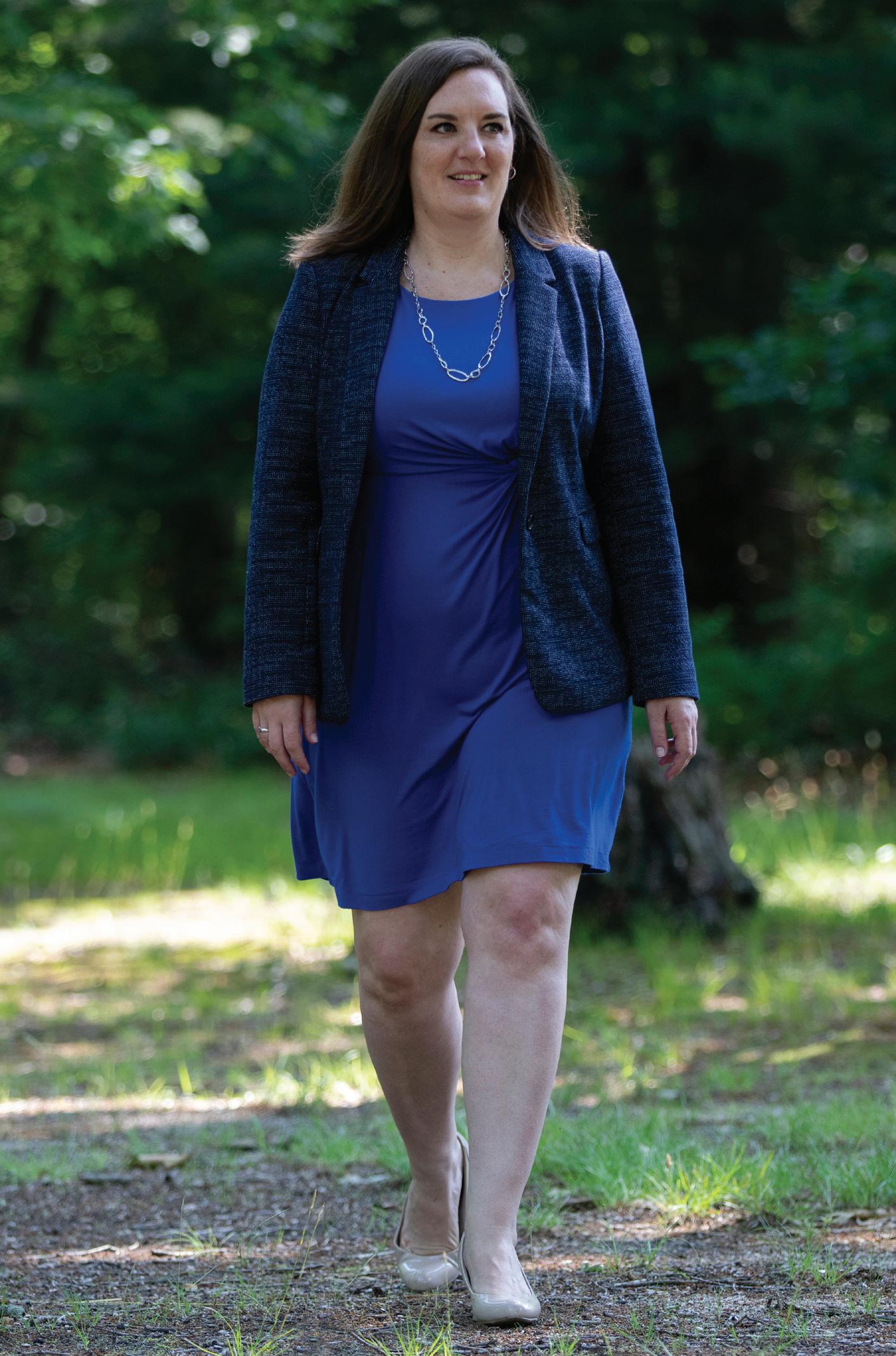 SETH COHEN, MD
TRISHALA MEGHAL, MD
SETH COHEN, MD
TRISHALA MEGHAL, MD
Hospital, a joint venture with MMC, was diagnosed with stage 4 inflammatory breast cancer—an aggressive form of the disease characterized by abnormal swelling, redness and often a puckering of the breast’s skin.
“Cancer in general is scary enough,” says Lynch, who lives in Tinton Falls. “To then also be stage 4, your first question is, ‘How long do I have?’”
Lynch was fortunate. Her cancer was positive for the protein HER2, which responds to a number of treatments. This diagnosis also made her eligible for a clinical trial of a therapy that could further improve her odds against the disease.
Lynch was the first person in the country to be enrolled in the multisite clinical trial, which is investigating whether adding the medication tucatinib to existing drug protocols for her condition can prevent the cancer from spreading to the brain.
“With HER2-positive breast cancer, the chances of it recurring in the brain are quite high,” says Dr. Meghal. “Preventing that from occurring might allow us to give a patient other helpful, systemic therapies for a longer period of time.”
Tucatinib was previously approved for advanced forms of breast cancer. “We already know it’s an effective medication,” says Dr. Meghal. “We’re just providing it at an earlier point in treatment.”
To qualify for the trial, Lynch first had to undergo a course of chemotherapy, during which support from family members who flew from Washington State allowed her to continue working.
Lynch was then put on treatment for her cancer plus either tucatinib or a placebo. She won’t know which she is taking until after the trial ends, a practice that helps ensure accurate results.
“Selfishly, you hope you get the benefit of whatever they’re studying,” says Lynch, who has fared well on the regimen. “But [even if I’m receiving the placebo] it’s still worth it. There can’t be advances if we don’t have people willing to participate in clinical trials.”
In late 2019, John White, 68, an application engineer for an electronic security company in Ocean Township, began having occasional abdominal
cramps. “A couple of times, it felt like something was blocked,” he says.
Blood tests at a walk-in clinic revealed that White was anemic, or low in oxygen-carrying red blood cells. This finding combined with his symptoms prompted his doctor to schedule a colonoscopy.
The results weren’t encouraging: White was diagnosed with colon cancer. “I found out I had cancer on a Friday, and they did surgery the following Monday,” says White, who has two adult sons and several grandchildren. “My family was very worried.”
Further tests showed that the cancer had spread to White’s lung. He received 19 rounds of chemotherapy plus targeted therapies—treatments that selectively attack cancer cells without affecting normal cells.
Eventually, the cancer shrank, and blood levels of a tumor marker dropped. But levels started to rise again months later. “I’d been hoping I was out of the woods,” White says.
Dr. Cohen then suggested White enroll in a clinical trial designed to see if patients with metastatic colon cancer benefited from early use of a combination drug, trifluridine/tipiracil, which is typically added to treatment in patients like White later in the course of the disease. “In this trial, we’re doubling down earlier,” Dr. Cohen says.
White started taking the drug in November 2021. “We haven’t published the results yet, but this regimen appears to have great efficacy,” Dr. Cohen says. “We’ve enrolled a good number of patients in this study, and participants have had remarkable results, well above our expectations.”
White is in it for the long haul. “It’s been good all around,” he says. “I trust my doctor.”
RWJBarnabas Health and Monmouth Medical Center, in partnership with Rutgers Cancer Institute of New Jersey—the state’s only NCI-Designated Comprehensive Cancer Center—provide close-to-home access to the most advanced treatment options. Call 844.CANCERNJ or visit www.rwjbh.org/beatcancer.Parents of triplets can literally have their hands full, as Eileen and Donald Sutera-Coder of Forked River can attest. On March 28, they welcomed their daughters Peyton, Madison and Brynlee into the world.
Born eight weeks early, the babies were cared for in the Hirair and Anna Hovnanian Foundation Neonatal Intensive Care Unit (NICU) at Monmouth Medical Center (MMC). “Being parents of three babies in the NICU is an emotional and physical challenge,” says Eileen.
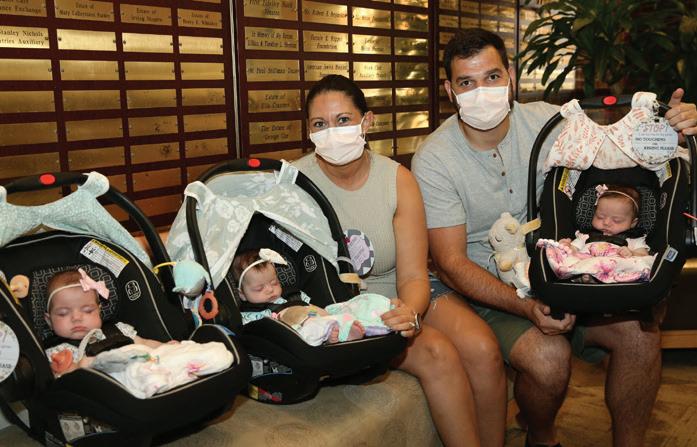
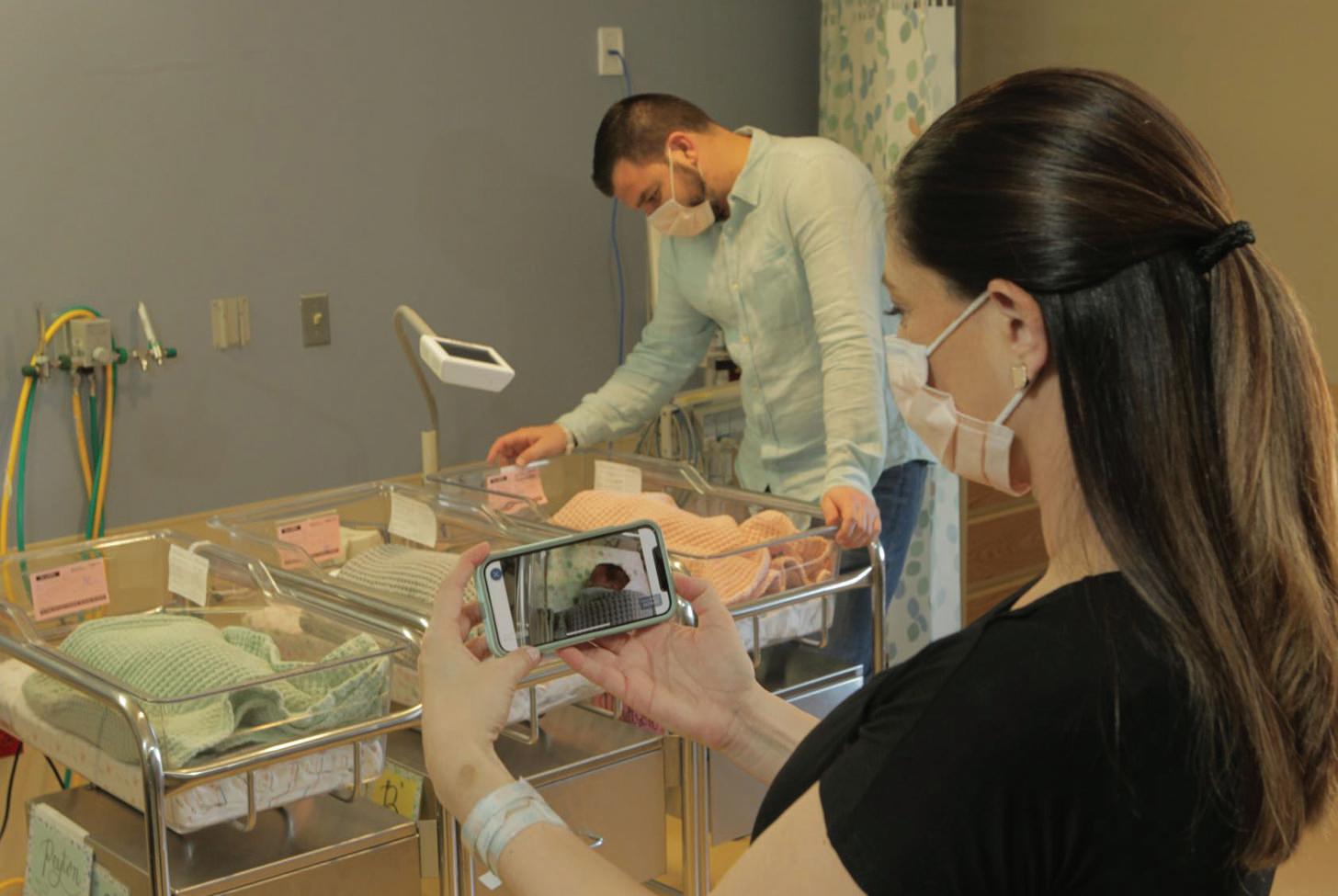
One challenge was getting to the NICU—and keeping tabs on progress when visiting wasn’t possible. While tending to her daughters in the NICU during April, Eileen explained the couple’s dilemma: “We visit every day for three to four hours, but [Donald] is working and I can’t drive yet,” she said. “So we are limited in how often we can be here.”
Fortunately, an interactive technology called Angel Eye gave them peace of mind
at times when they were unable to be by the babies’ sides during a nearly onemonth stay in the NICU.
The internet-based camera system allows parents and families to see their baby (or babies) in the NICU via live video streaming. A bedside camera provides a view of the baby 24 hours a day when a user logs into a secure account from a laptop, tablet or smartphone. The system promotes bonding between parents and their premature babies, who sometimes must stay in the hospital for weeks or months.
First installed thanks to a generous donation from the Scire Family Foundation when MMC marked the NICU’s 50th anniversary in 2018, the innovative system received a recent hightech upgrade funded by the Big Steps for Little Feet fundraising walk. The walk is held annually to support the hospital’s NICU, with this year’s October 16 event
restoring an in-person format after two years of virtual participation during the COVID-19 pandemic. The system allows nurses to text updates on babies to parents right from an app, says Bonny Adler, Director of Patient Care for the NICU.
“The new technology is amazing,” Adler says. “The feed is much better, and it features advanced night-vision technology so parents can see babies clearly in dim light. For new parents, it alleviates fears and provides additional support knowing their baby is OK.”
“This system helped make the experience easier for us,” Eileen says. “I used the texting function to communicate with nurses when I wasn’t there, and the nurses used it to send us updates at the end of every shift.”
“Nights when we couldn’t make it there, we could peek in on them,” Donald adds.
Eventually, peeking in wasn’t necessary: The couple welcomed Peyton and Madison home on April 18, with Brynlee joining her sisters on April 26.
A Regional Newborn Extension Program for infants who begin their lives in the Hirair and Anna Hovnanian Foundation Regional Newborn Center enables them to be screened and evaluated as they grow. The program provides state-of-the-art developmental screening and evaluation services by an interdisciplinary team of professionals to monitor infants at periodic intervals in all areas of growth and development.
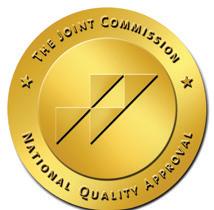





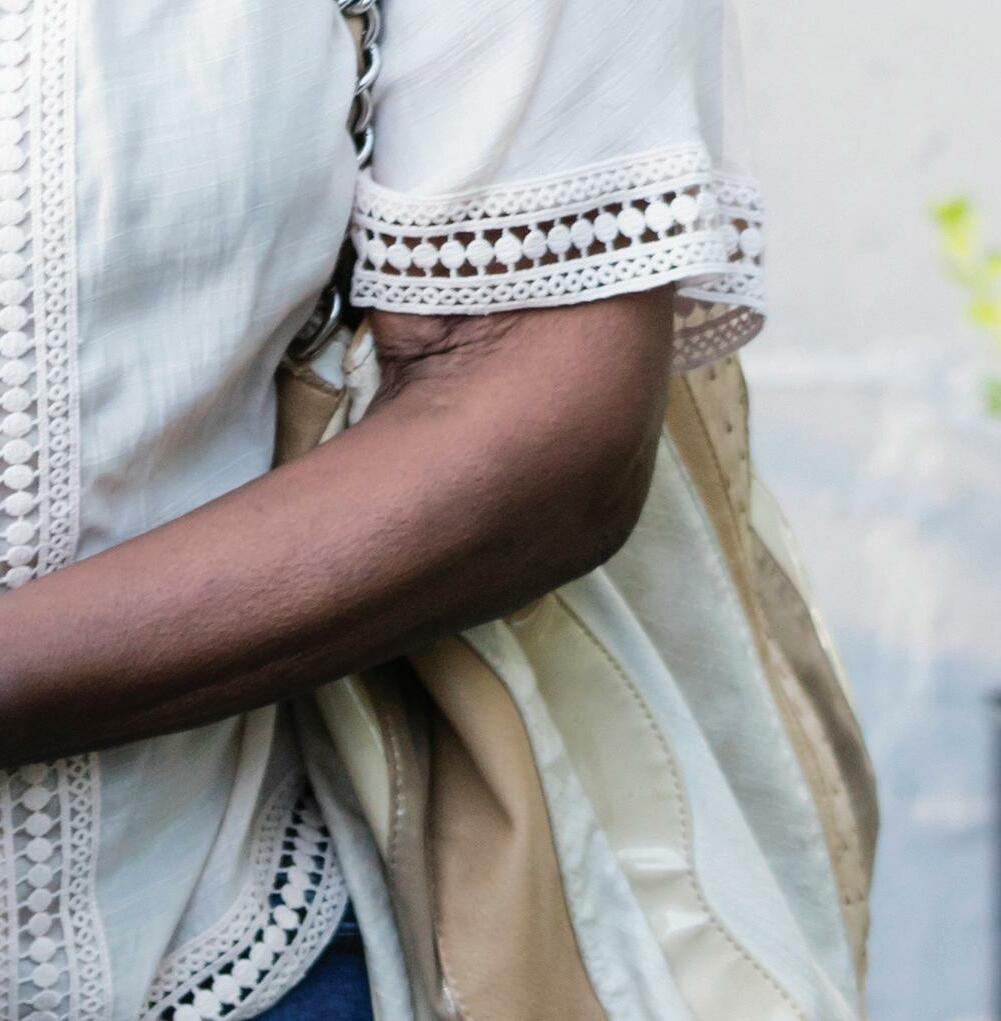

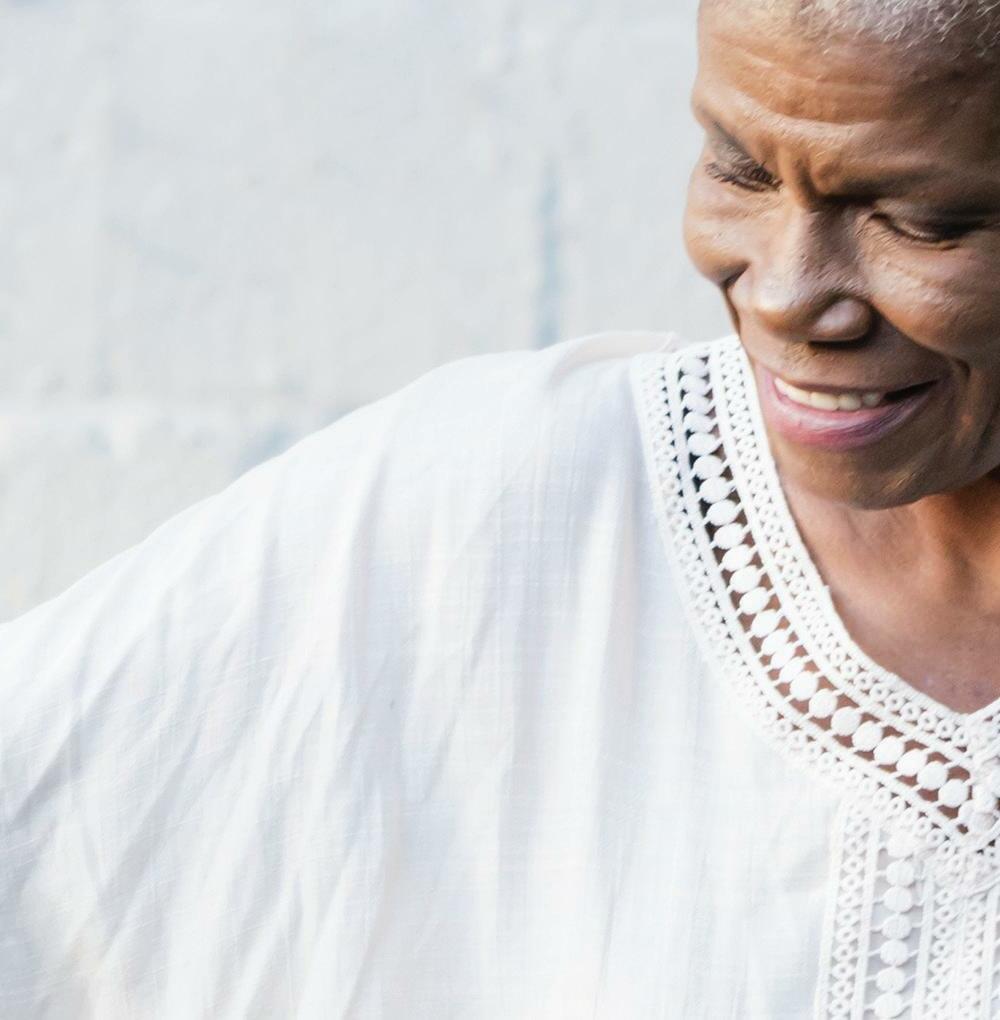
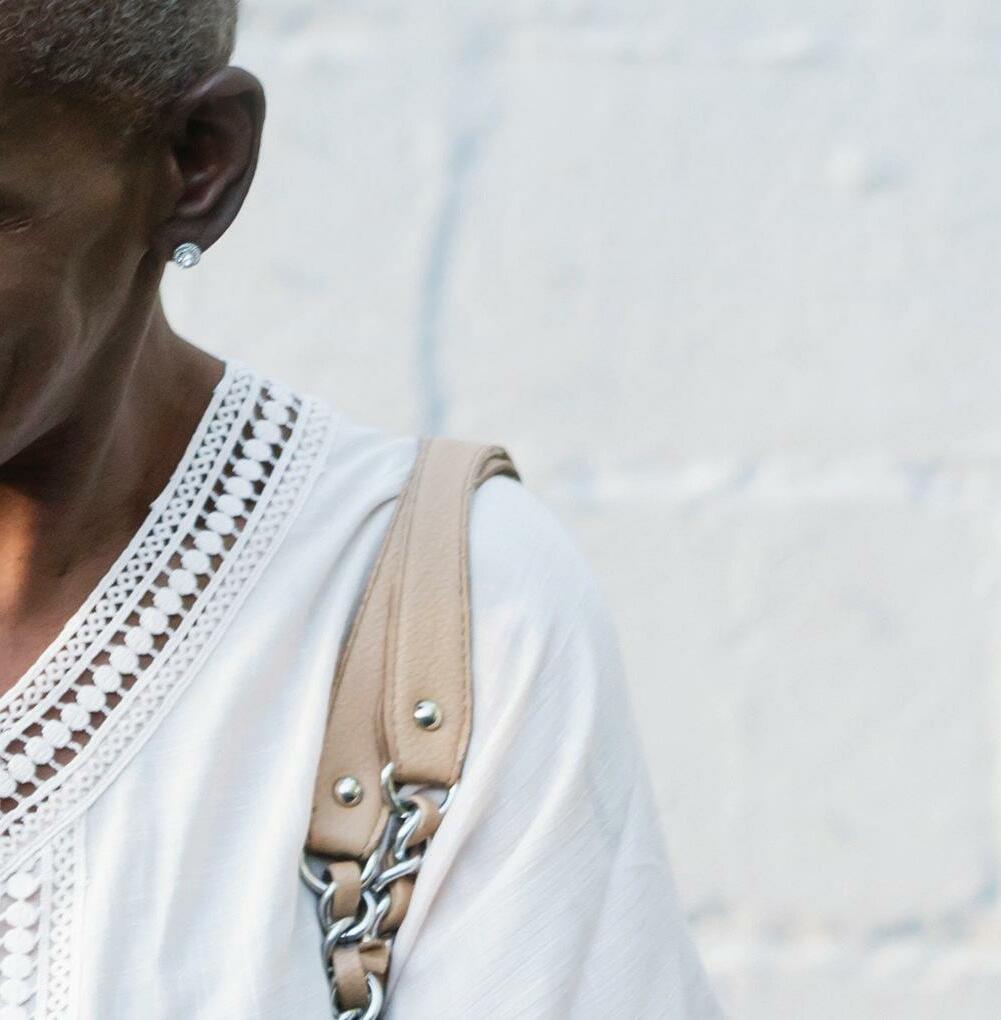






When you need treatment for spinal problems, even the thought of traveling out-of-state for care can be painful. At RWJBarnabas Health, our orthopedic surgeons and neurosurgeons work with you to create a personalized treatment plan, right in your own community. We offer non-surgical treatments in addition to the latest surgical techniques, such as reconstruction and minimally invasive robotic surgery. Learn more at rwjbh.org/spine
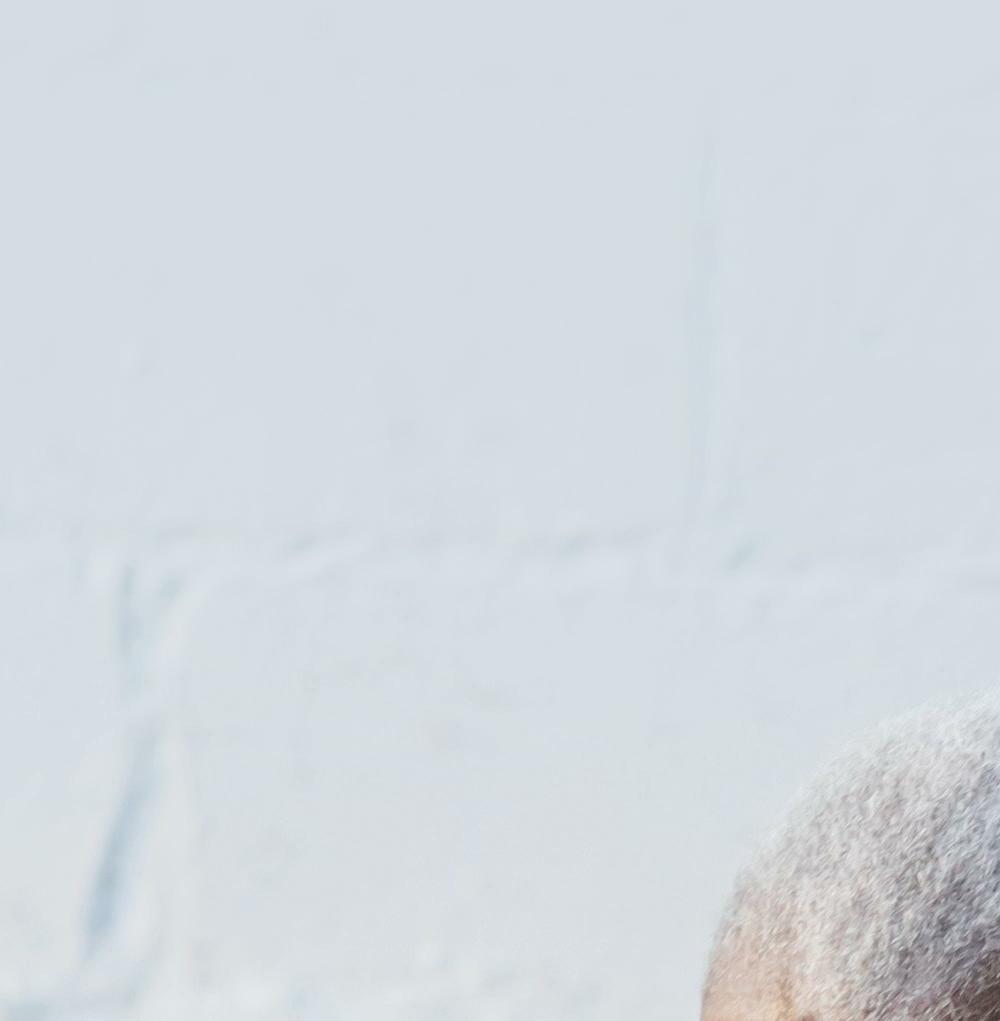
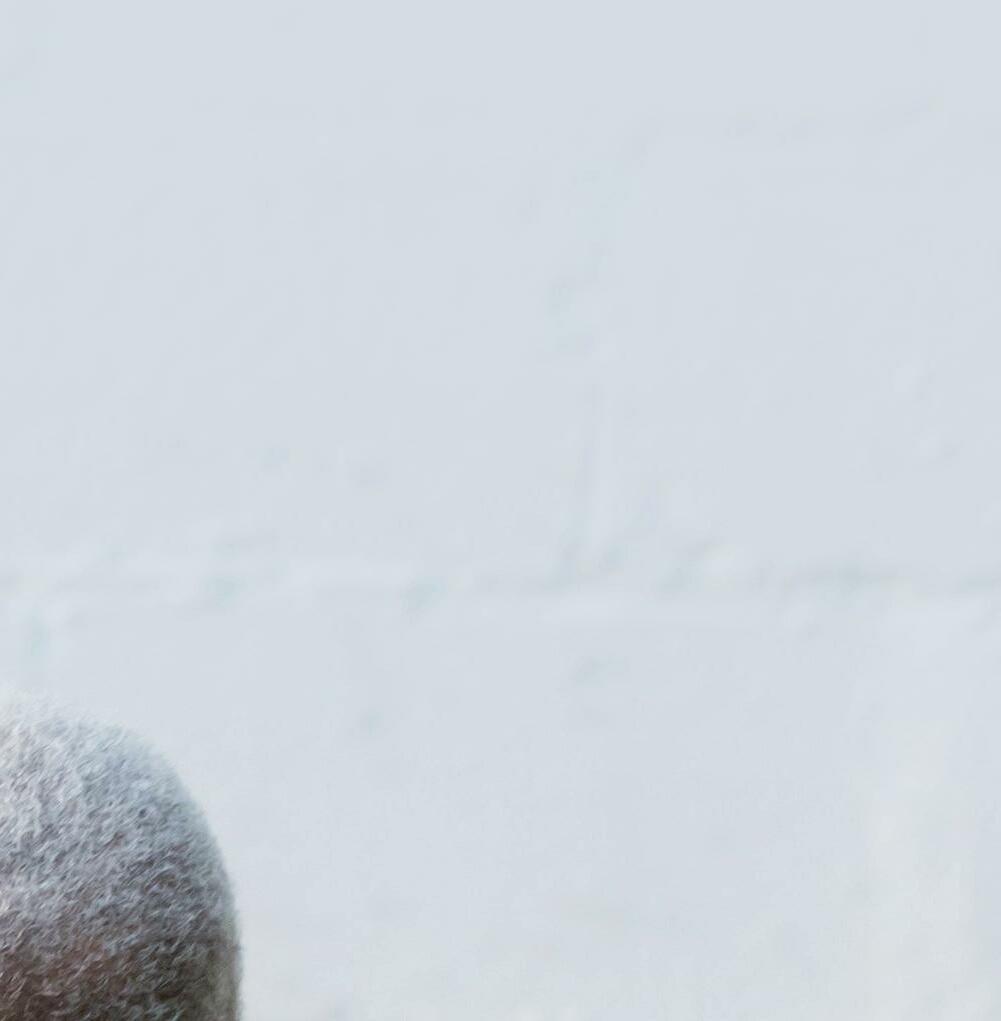
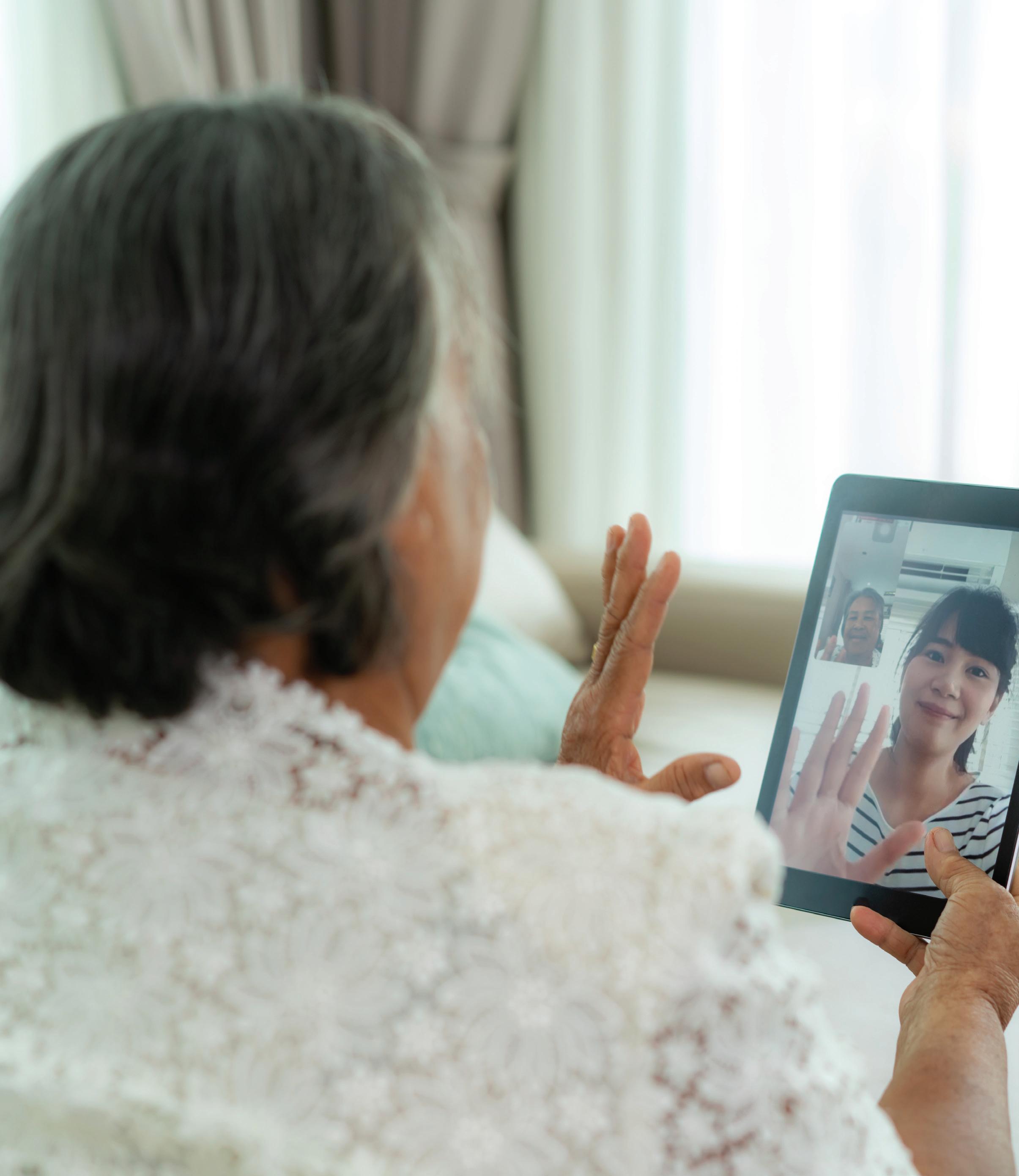
The days are getting shorter, the weather’s getting cooler and soon the holidays will be here. For some of us, the weeks and months leading up to the holiday season are filled with eager anticipation. But for many others, this time can be an emotional minefield fraught with crippling anxiety and depression. Here, psychiatrist Arnold Williams, MD, Medical Director of the Behavioral Health Center, part of RWJBarnabas Health’s Behavioral Health and Addictions Services, explains the link between the holidays and depression—and offers advice to help you cope.
Why do people get depressed around the holidays?
The holidays coincide with late fall and winter, when exposure to sunlight is decreased. This can have a profound effect on mood. In addition, many businesses slow or even shut down during the holidays, and, for some, that may mean fewer opportunities for social interaction.
Do the holidays tend to exacerbate existing depression?
The holiday season is a time of reflection and gift-giving, which can be rewarding for those in fortunate circumstances. However, isolation, separation from loved ones and anniversaries of loss can all worsen depression.
What’s the difference between being depressed and simply feeling sad?
According to RWJBarnabas psychiatrist Arnold Williams, MD, there are things you can do to mitigate depression:
1. Maintain contact with friends and family, if possible.
2. Get as much natural sunlight as you can.
3. Exercise—walk, run, move.
4. Practice yoga, mindfulness and meditation. They work!
5. Recognize that this too shall pass. You’ve survived all of the bad days you’ve had so far— that’s proof that things can get better again.
6. Don’t try to ease the pain with substances; it will compound the problem.
7. Know that you’re not alone. Reach out to a professional who can help you.

patterns and reduced self-esteem. At its most extreme, depression can include suicidal thoughts or feelings of not wanting to be alive.
Do depression and anxiety always go hand-in-hand?
They can happen together or separately. Philosophically, depression and anxiety are two sides of the same coin. Anxiety is an anticipatory “what if” reaction, dreading the unknown and fearing the worst. Depression is a conclusion that the worst is happening right now and may not ever get better.
ARNOLD A. WILLIAMS, MD
Depression implies a wide constellation of symptoms over several days or weeks. The emotion itself is only one component. Most commonly, that emotion is sadness, but there can also be anger, loneliness, worry or anxiety, as well as changes in thoughts and behaviors. Examples include losing interest in things you usually enjoy, a decrease in energy, changes in appetite or sleep
How does grief impact depression and vice versa? Grief can be a trigger for a relapse in depression, and a person who’s been depressed may experience a prolonged grief period. The holidays are difficult partly because they’re usually connected to memories of a lost loved one.
Being diagnosed with cancer is life-changing. It can have a profound effect on your psyche, leaving you feeling frightened, confused and overwhelmed. At the same time, you need to make calm, clear and timely decisions about important matters such as doctors and treatment options.
That’s why RWJBarnabas Health (RWJBH) and Rutgers Cancer
Institute of New Jersey, the state’s only National Cancer InstituteDesignated Comprehensive Cancer Center, developed the Oncology Nurse Navigation Program.
For a person with cancer, a nurse navigator is not just a valuable resource, but a smiling face and a caring individual to help you and your family maneuver the often uncharted territory of your cancer journey.
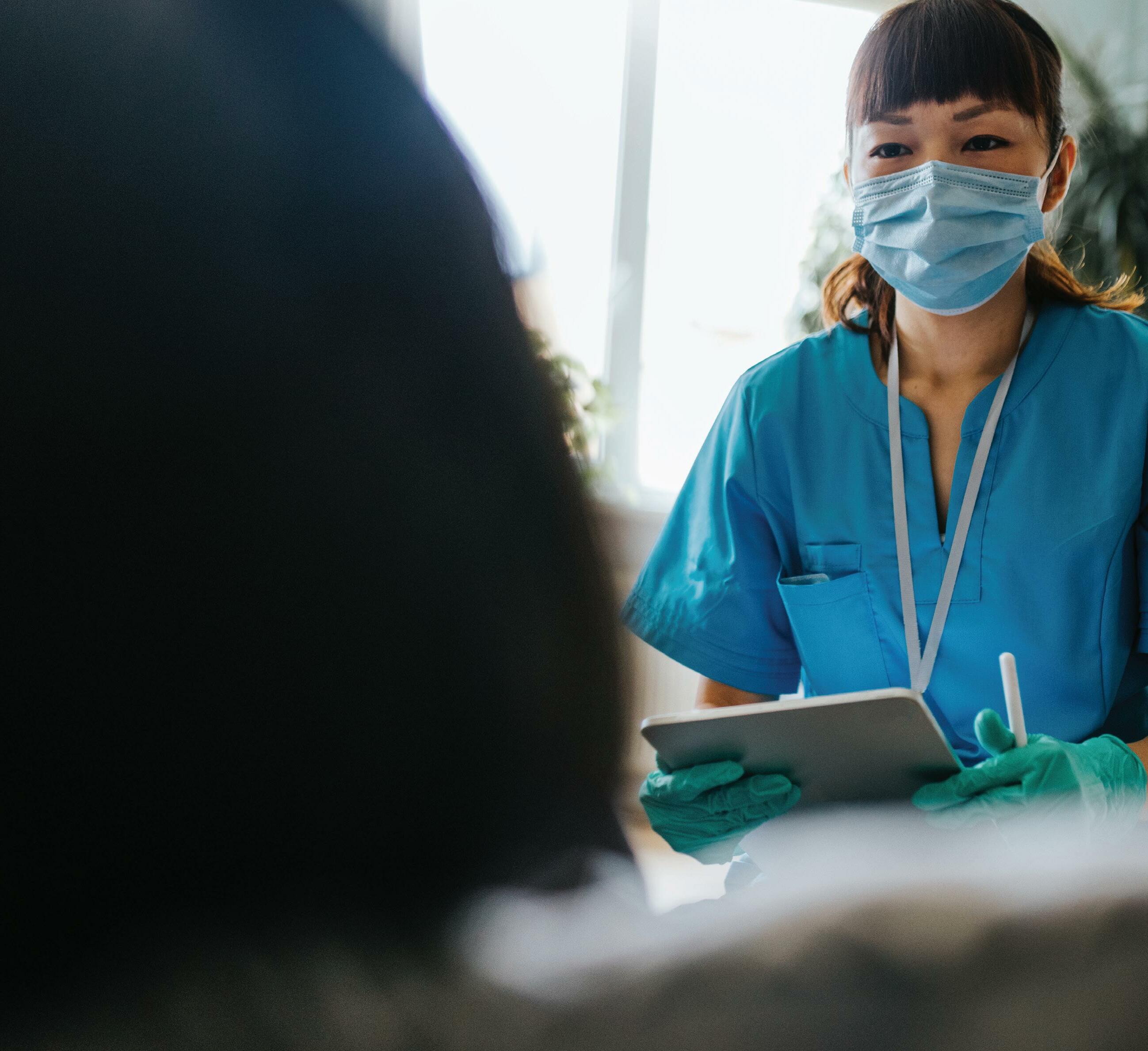
Jeanne Silva, MSN, RN-BC, Assistant Vice President, Oncology Access and Nurse Navigation, Oncology Services, explains what the Oncology Nurse Navigation Program is and how it works.
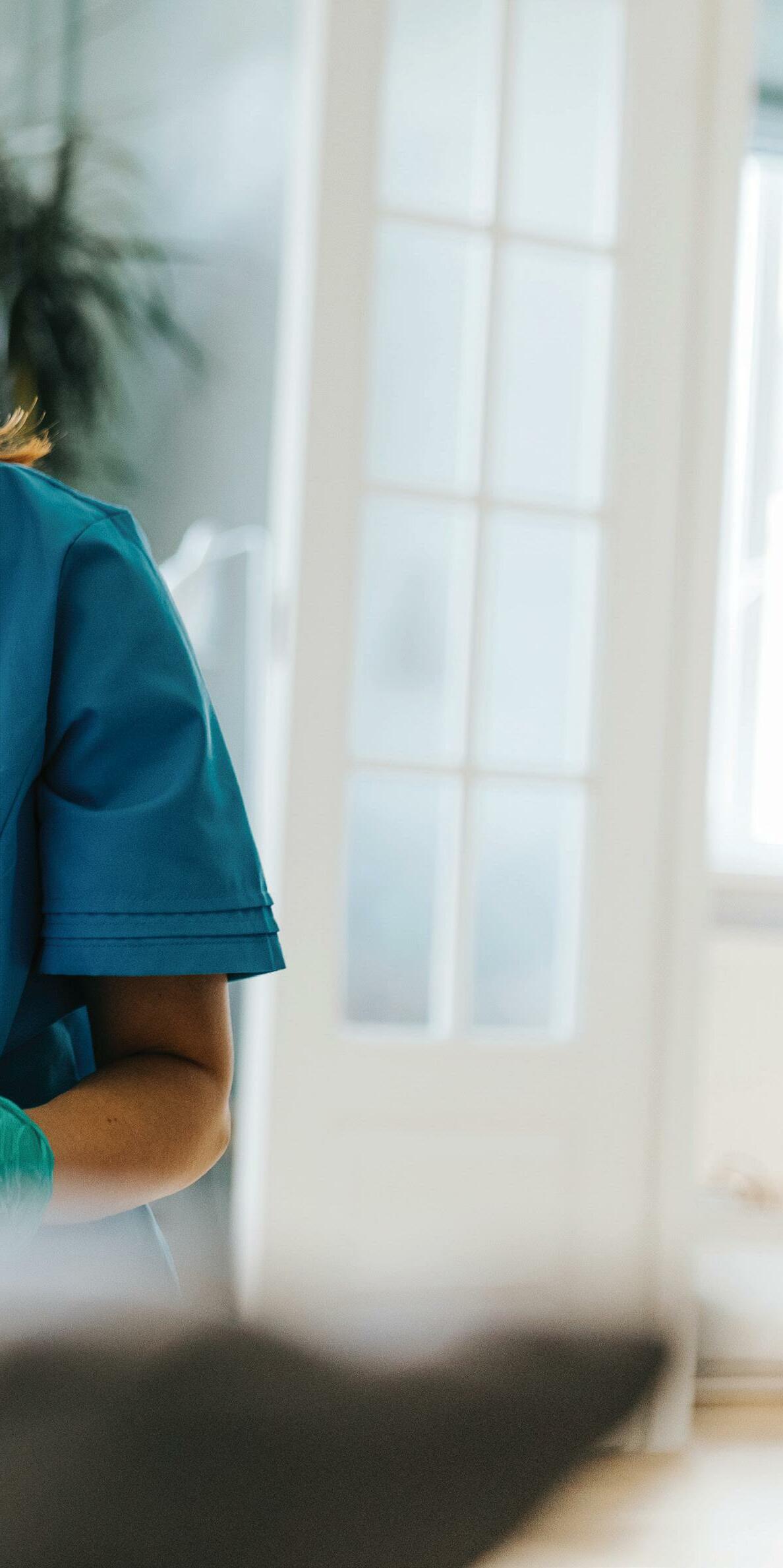
If you’re diagnosed with cancer and are a patient at RWJBH, the program
places an expert at your side who advocates for you and provides direction, support and information through all phases of treatment at no additional charge. The nurse navigator is the hub of your care team, communicating your needs across departments and answering your questions about what to expect, what to do, where to go and why. Having a trusted, committed expert guiding
you helps you participate fully in treatment decisions, achieve quality outcomes and reduce stress.
When was the program developed, and how has it changed since its inception?
The RWJBH nurse navigation program began in 2018 with 18 navigators. Today we have 45 navigators and are growing. Oncology nurses receive navigationspecific training as well as ongoing education to improve care through measures such as shortening the time between diagnosis and meeting with an oncologist and improving access to palliative care.
Our program is the state’s largest. We routinely conduct quality improvement projects and have presented our outcomes nationally to share best practices. We are one team across our facilities. If you see an oncologist from Rutgers Cancer Institute, for example, but want to receive radiation therapy closer to home or need to see an RWJBH subspecialist, we help coordinate your care seamlessly between sites.
What are some benefits that patients might find surprising?
You’re quickly assessed for any barriers to care and provided resources to overcome them. Barriers often include lack of knowledge, transportation difficulties and financial hurdles. Helping you ease worries allows you to focus on getting well. One aspect is that anxiety and fear of the unknown sometimes prevent people from starting potentially life-saving treatments. We’ll assess this and provide support so you can get the right care. Or, for example, if you’re a candidate for a clinical trial, the navigator can educate you about that and connect you with a research team.
Each navigator brings a wealth of knowledge, energy and empathy. You’re unique with your own story, and the navigator is there to listen and help.
RWJBarnabas Health, in partnership with Rutgers Cancer Institute of New Jersey—the state’s only NCI-Designated Comprehensive Cancer Center—provides close-to-home access to the most advanced treatment options. Call 844.CANCERNJ or visit www.rwjbh.org/beatcancer.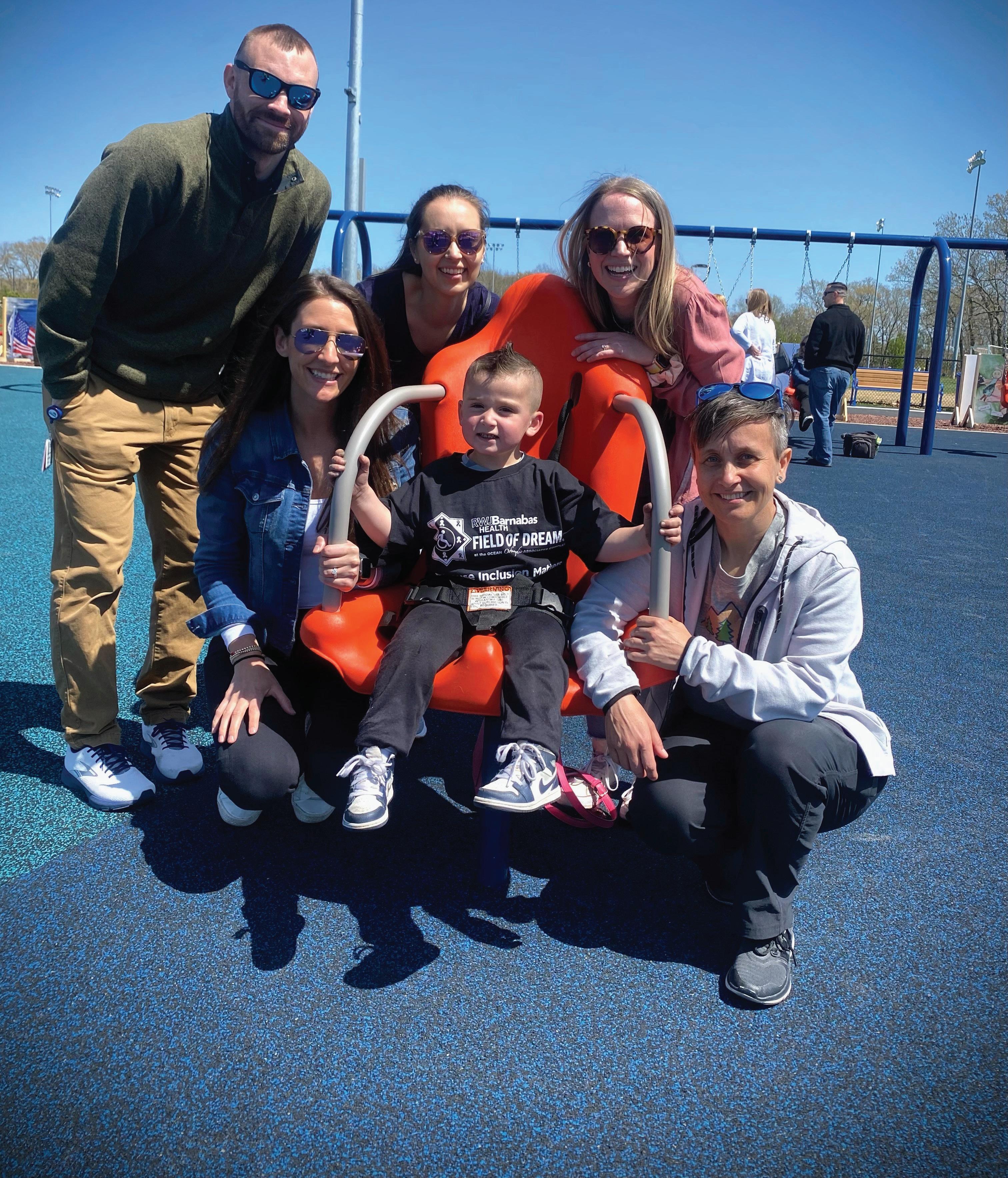
Nikos Kaymakcian is a happy little boy who loves pirates and practicing karate with his older brother, Arman. As he approaches his fourth birthday, his parents, Nicole and AJ Kaymakcian, can’t help but wonder how their lives might be different if they hadn’t sought a second opinion when Nicole was pregnant with Nikos. It was then, at their 20-week ultrasound, that Nicole and AJ were told that their son has spina bifida, a neural tube defect (NTD) that often results in spinal cord and nerve damage. “The doctor told us that our son would never walk or be able to use the bathroom on his own and would require a shunt to drain fluid from his brain,” Nicole recalls. In one fell swoop, their hopes and dreams for their baby came crashing down.
But a friend whose child had received a similar diagnosis recommended that

Nicole contact her neurosurgeon for a second opinion. After examining Nicole and her baby, the doctor told Nicole to go home and enjoy her pregnancy. “He said, ‘When your son is born, we’ll do surgery and take it from there,’” she remembers. And that’s what happened.
In October, 2018, Nicole gave birth to Nikos at Monmouth Medical Center, and the neurosurgeon performed the baby’s surgery the following day. Before his first birthday, Nikos began early intervention with physical therapy at Children’s Specialized Hospital (CSH), part of the Children’s Health Network
at RWJBarnabas Health.
CSH physical therapist Tara Iannello, who has been working with Nikos since then, “is an angel,” says Nicole. Nikos also works with physical therapist Natalie Vulpis. “She gives Nikos a push when he doesn’t want to do something and has also been a great fit for him,” says Nicole.
The CSH physical therapists go out of their way, not only to provide great care, but to customize it and make it fun. “Last year, Nikos loved superheroes,” says Nicole, “so Tara set up superhero action figures in stations so he had to practice walking to each one.”
Though Nikos has some weakness in his ankles and feet due to nerve damage, he’s on par with all other milestones for his age and, says his mom, “he’s now walking with braces and his walker, taking steps on his own.
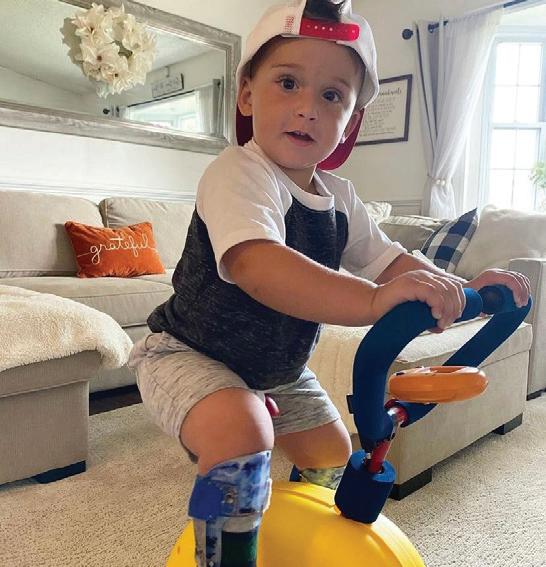
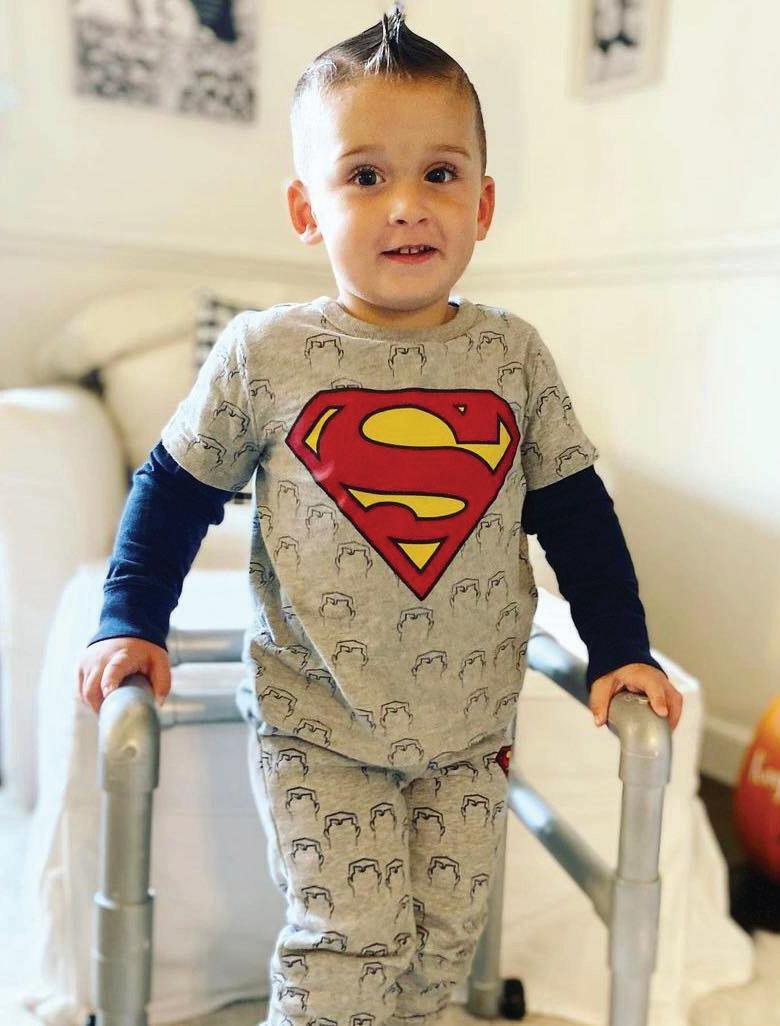
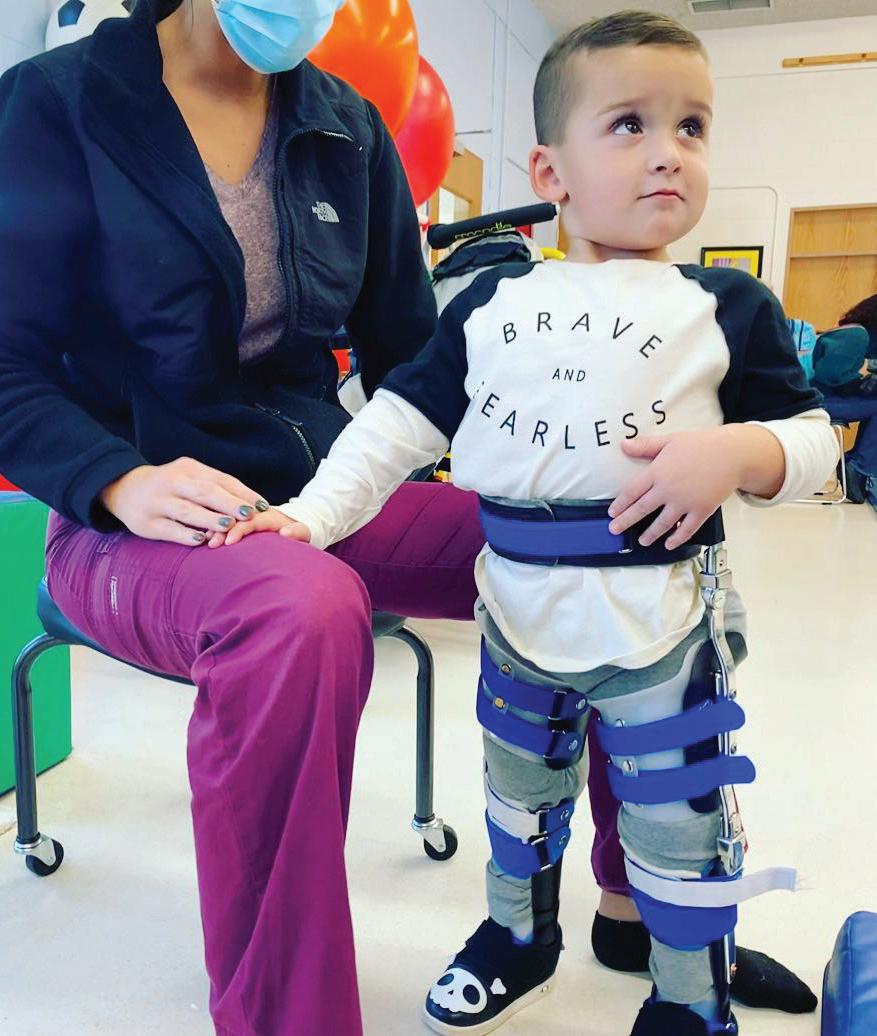
“I can’t say enough good things about what the people at CSH have done for my son. We’re so blessed.
We love them with all our heart.”
The feelings are mutual. “He’s such a sweet and funny kid, and he’s gotten so strong,” Iannello says of Nikos. “We have no doubt that he’s going to do great things in this world.”
East
For years, taking a daily low-dose aspirin for the prevention of heart attack and stroke has been a widely accepted practice. But the U.S. Preventive Services Task Force (USPSTF) recently issued updated guidelines recommending against its use in certain patients for primary prevention of heart disease. Here, cardiologist Jeffrey S. Lander, MD, Co-Director of Sports Cardiology at RWJBarnabas Health, Co-Medical Director of the Cardiac Care Unit at Cooperman Barnabas Medical Center and a member of RWJBarnabas Health Medical Group, explains.
How are the new guidelines different from the previous guidelines?
This is a big change from the 2016 guidelines, which recommended using aspirin for primary prevention in adults aged 50 to 59 who were at risk for cardiovascular disease, and to consider its use for certain adults aged 60 to 69 who were at risk for cardiovascular disease.
recent stent procedure. If someone has that history, it’s generally beneficial to take a low-dose daily aspirin as it helps reduce the risk of recurrent cardiac disease or events.
If someone has been following a lowdose aspirin regimen for years, what should they do?
JEFFREY S. LANDER, MD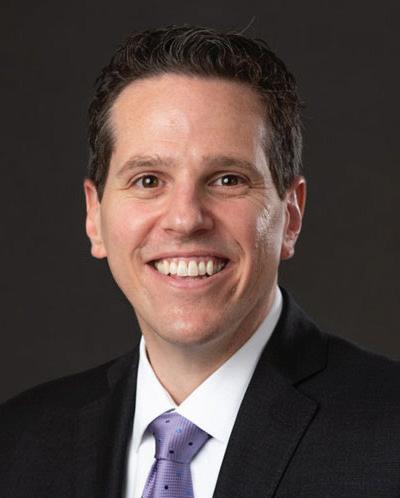
The 2022 guidelines state that using aspirin in select 40to 59-year-olds may have some benefit in preventing heart disease, but it is not recommended for people aged 60 and older.
Older trials of aspirin use for primary prevention showed benefits—for example, reduction in heart attacks. However, more recent studies did not show a significant reduction in cardiovascular disease. In addition, many of these trials also showed significant risk of internal bleeding among those taking daily aspirin. Given these findings, the recommendations changed.
It’s very important to remember that these recommendations don’t pertain to patients with a prior history of heart attack, stroke, bypass surgery or a
In that case, it’s important that they speak to their doctor or healthcare provider before making any changes. All of the risks and benefits should be weighed prior to stopping aspirin. Most of the time when aspirin is to be stopped, it’s OK to simply stop; a stepdown approach isn’t needed.
How will the new guidelines change your recommendations to patients?
I feel that most of the latest evidence is in support of the new guideline recommendations.
Each patient is unique, and when recommending to either use or not use aspirin for primary prevention of heart disease, the risks and benefits should be discussed and weighed by doctor and patient to make an individualized plan.

Amultimedia historical retrospective exhibit titled “Black Firsts in Medicine” at Monmouth Medical Center (MMC) is highlighting the Parker family of prominent Red Bank doctors, along with other local Black healthcare pioneers. The exhibit was created exclusively for MMC, where, in 1955, Dr. James W. Parker Jr. became the first Black physician on the hospital’s medical staff.
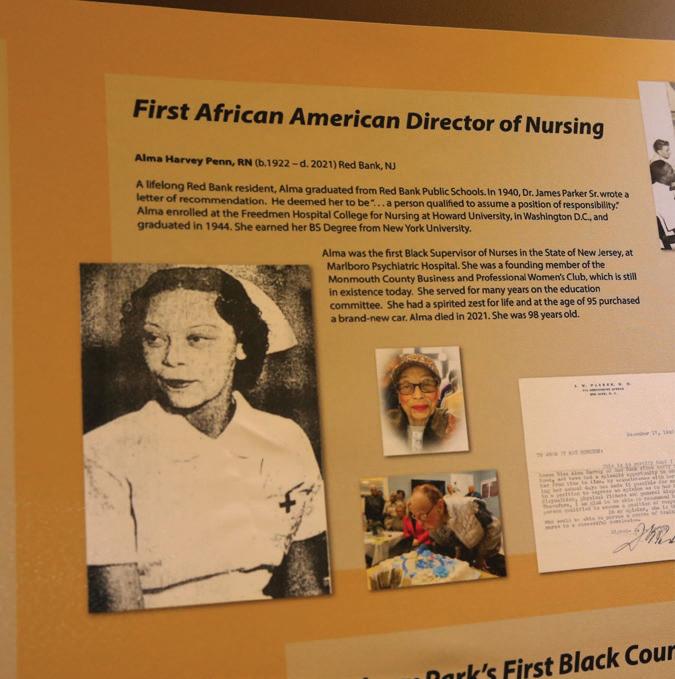
The display, located in a highly trafficked area outside the hospital cafeteria, corresponds with a permanent exhibit in the Parker Family Legacy Room at the T. Thomas Fortune Cultural Center, a national historic landmark in Red Bank. Sponsored by MMC, the Legacy Room chronicles the history of Parker family members who served their community for over 80 years.
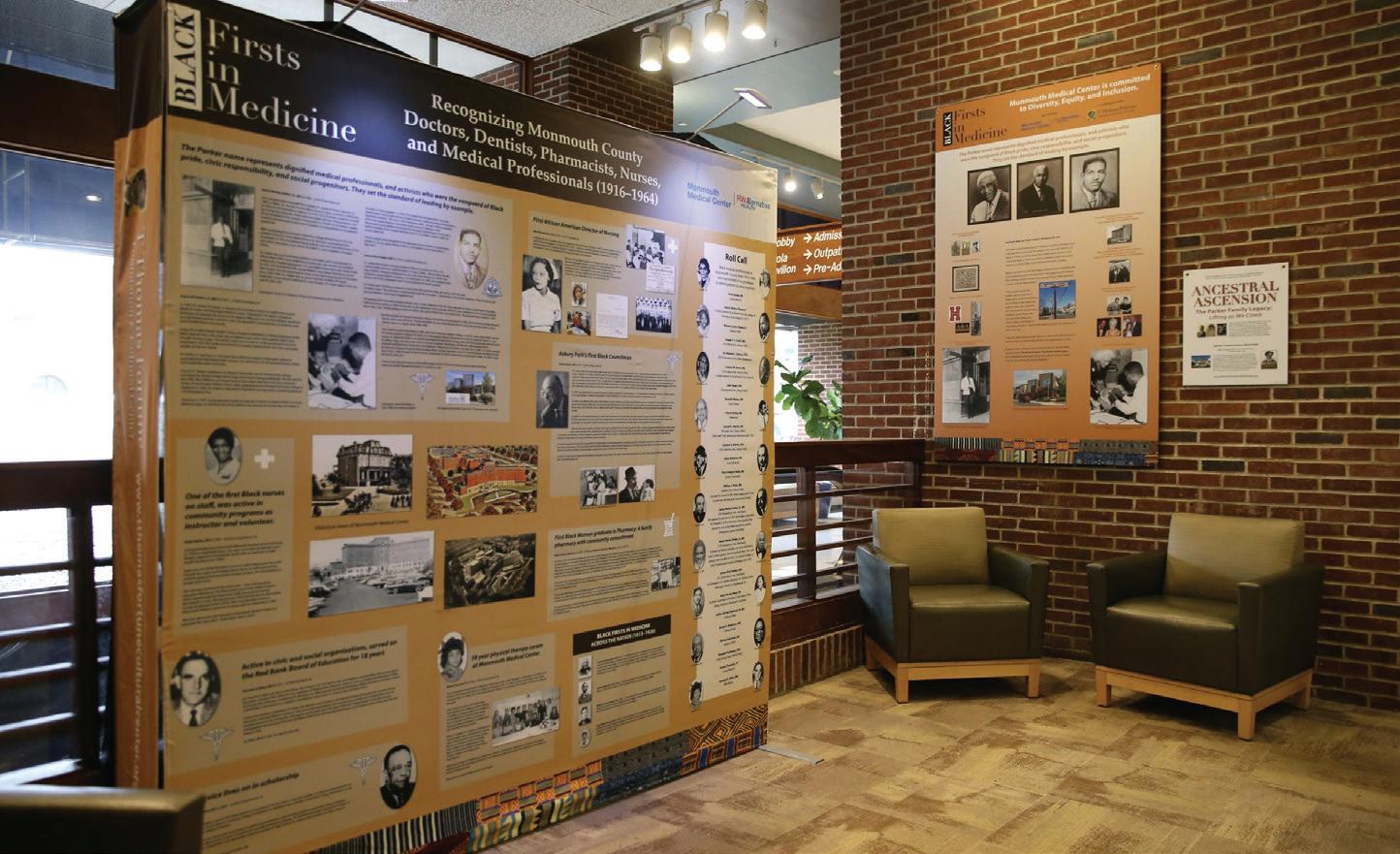
“The T. Thomas Fortune Cultural Center has a fantastic track record of providing research and education on the historical contributions of Black Americans,” said Eric Carney, President and Chief Executive Officer of MMC and Monmouth Medical Center Southern Campus. “I am so honored to partner with the cultural center to bring this ‘Black Firsts in Medicine’ exhibit and Parker Family Legacy Room to life to tell the story of how this family shaped the landscape of medicine in Monmouth County and the state of New Jersey.”
MMC is the exclusive sponsor of the Legacy Room, which serves as a multifunctional space for lectures, book signings,
Among those attending the dedication of Monmouth Medical Center’s “Black Firsts in Medicine” exhibit is Carol A. Penn, DO, MA, FACCE (below), who stands next to a tribute to her mother, Alma Harvey Penn, RN, the first Black supervisor of nursing in a New Jersey hospital. Dr. Penn, a native of Red Bank who is board-certified in family medicine and osteopathic manipulative treatment, followed her mother’s career path in healthcare when she entered medical school after age 40. This career change followed earlier accomplishments as an award-winning choreographer who had trained, performed and taught with the world-renowned Alvin Ailey American Dance Theater.

community forums and other presentations. The sponsorship also includes the T. Thomas Fortune Lecture series, which kicked off in the spring with the fatherson story of the Drs. James Parker, as well as a program for youth called Fortune Tellers. This unique program of workshops, training, community projects and ambassadorship is open to students in grades 8 through 12, who use means such as writing, visual arts, music and technology to share what they’ve learned and effect change.
Dr. Parker Sr., whose grandparents had been born in slavery, was born in Aiken, South Carolina, in 1888. A graduate of Howard University, he came to Red Bank 1919 and established his medical reputation treating victims of the influenza pandemic known as the Spanish flu.
“We found the timing was so right for this exhibit during the current pandemic,” said Gilda Rogers, Executive Director of the T. Thomas Fortune Cultural Center, during a dedication ceremony at the hospital. “The Parkers were so much more than physicians; they were leaders who guided and uplifted their communities. I couldn’t be more honored and pleased with the exhibit we unveil here today.”
“By celebrating the contributions of Black Americans in healthcare, I hope we can begin to break down trust barriers that may exist with the medical field,” Carney added. “The partnership will also help shape a better understanding of the unique needs of Black Americans as, together, we are aligned to achieve better health, wellness and equitable access to care through openness, understanding and education.”
Postpartum blues are normal. “But some patients have a pregnancy-related mood disorder that’s broader than just mild depression,” says Robert Graebe, MD, Chair of Obstetrics and Gynecology at Monmouth Medical Center (MMC) and a member of RWJBarnabas Health Medical Group. For them, help is available at MMC’s pioneering Center for Perinatal Mood and Anxiety Disorders.
“Our center is one of the first of its kind in the country,” Dr. Graebe says. Perinatal mood and anxiety disorder (PMAD) treatment at the center focuses on postpartum challenges rather than broader psychiatric problems such as addiction or chronic depression. Screening tools used throughout pregnancy and afterward help identify women who may benefit from specialized care. Treatment includes evidence-based psychotherapy, support groups, medication management and certain complementary therapies.
“About one in nine patients are eligible for PMAD care, so relatively severe disorders are not uncommon,” Dr. Graebe says.
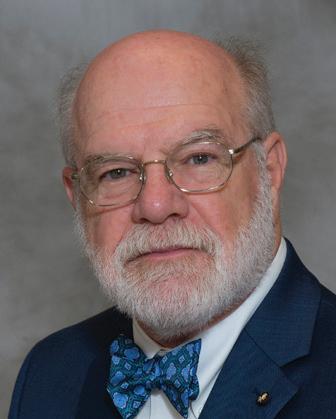
THESE STEPS HELP ENSURE HEALTH FOR MOTHERS AND BABIES DURING PREGNANCY AND CHILDBIRTH—AND BEYOND.
P regnancy, childbirth and motherhood provide some of the most stressful and joyous experiences in life. Reducing the stress and highlighting the joy are goals underlying the wide range of services for women and children available at the new Anne Vogel Family Care & Wellness Center at Monmouth Medical Center (MMC).
“It’s not unusual to be a little anxious about taking a newborn home, especially for first-time parents,” says Robert Graebe, MD, Chair of Obstetrics and Gynecology at MMC and a member of RWJBarnabas Health Medical Group. “Specialists at the Anne Vogel Center can guide you through every stage with expertise that includes obstetrics and gynecology, maternal-fetal medicine, breastfeeding wellness, and mood and anxiety challenges.”
like these can help ensure you have the smoothest experience possible.
KNOW YOUR RISKS. “Risks for mothers and babies increase with factors such as advancing maternal age, substance abuse, domestic violence and chronic medical conditions like obesity, hypertension and diabetes,” says Dr. Graebe. Most obstetrician-gynecologists screen for these conditions on a first visit and periodically check with you about them as your pregnancy proceeds.
GET TESTS. Keeping tabs on maternal and fetal health can help you and your healthcare team manage risks and detect signs of potential complications. Tests include:

• BLOOD PRESSURE: Chronic hypertension can increase risks for potentially serious pregnancy-related blood pressure disorders.
• BLOOD SUGAR: Hormonal changes during pregnancy can cause gestational diabetes, in which the body has trouble processing blood glucose.
• ULTRASOUND: Imaging helps detectROBERT GRAEBE, MD
Following steps
Lisa Tremayne, RN, PMH-C, CBC, who leads the Center for Perinatal Mood and Anxiety Disorders at Monmouth Medical Center (MMC), was honored along with 12 other nurses from around the world at the annual Nurses with Global Impact awards celebration, held recently at Hudson House in Jersey City.
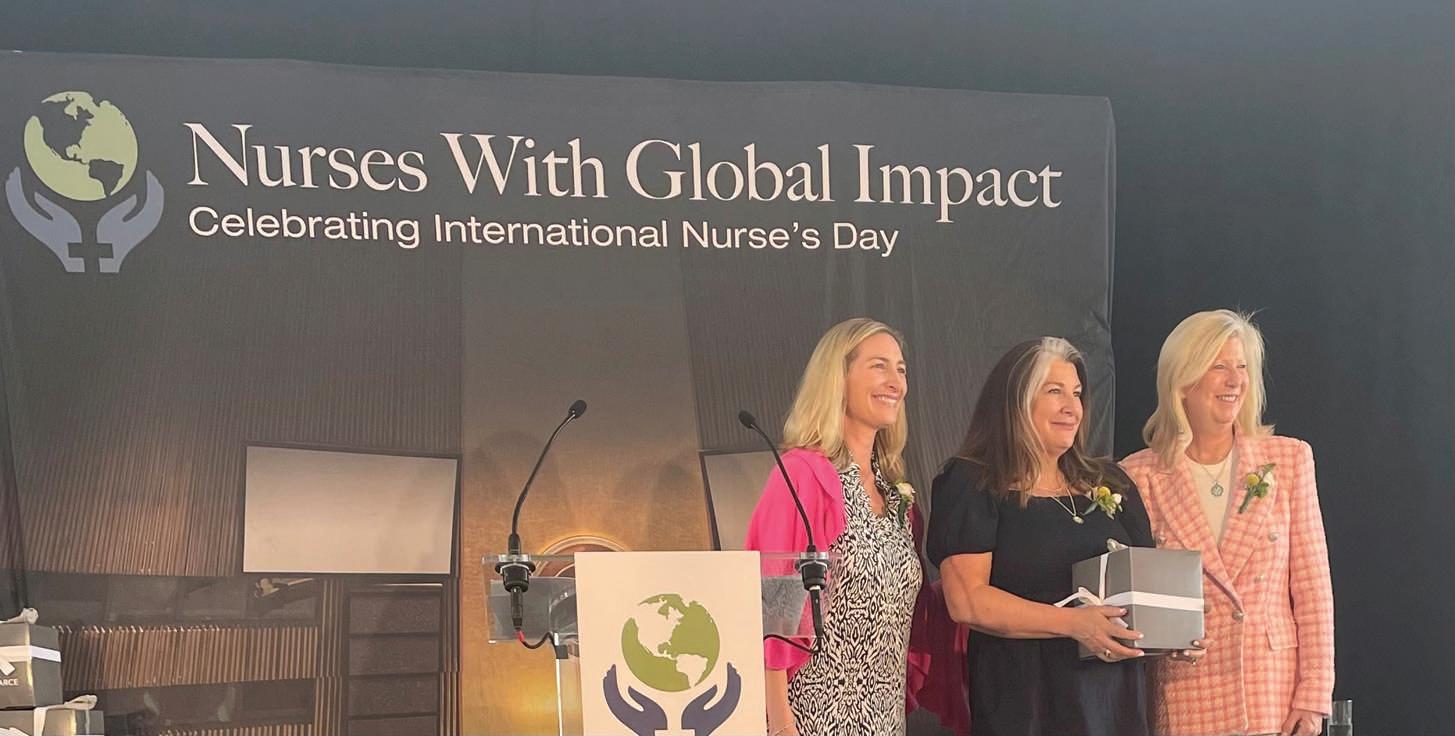
MMC’s multidisciplinary perinatal mood and anxiety disorders (PMADs) program, which supports maternal mental health from pregnancy through the first year of motherhood, is the only program of its kind in New Jersey, and one of only 20 similar programs in the United States.
Tremayne’s mission is to ensure that specialized treatment resources are available for any woman experiencing maternal mental health issues, the leading complication of childbirth.
Lisa Tremayne, RN, PMH-C, CBC (center), accepts a global award for supporting mothers.
average, but for some patients, we need to veer from the original plan.”
Keeping physically active, eating a healthy diet, managing weight and avoiding tobacco, alcohol and nonprescribed drugs can all improve the odds that you and your child will stay healthy and thriving.
“We encourage patients to breastfeed, but not everyone is able to do it or finds it to be an easy process,” Dr. Graebe says. MMC providers including lactation consultants help mothers establish early skin-to-skin contact that facilitates breastfeeding and provide guidance on matters such as how to help a baby latch on, how to know a baby is getting enough milk, how often to feed and how long to continue breastfeeding.
“Our advanced practitioners and staff are dedicated to providing every aspect of maternal-fetal care,” Dr. Graebe says.
abnormalities in a baby’s growth or anatomy.
• AMNIOCENTESIS: Testing amniotic fluid may be recommended if you’re over 35 or have a personal or family history of birth defects.
• HEART TESTS: Cardiac and Doppler scans, along with nonstress fetal monitoring, help determine that a baby has a healthy heart.
“If a potentially serious problem is found, our team can help manage it with outpatient care or, if needed, hospitalization or care in our topfunctioning neonatal intensive care unit,” Dr. Graebe says.
“When there’s a personal or family history of poor birth outcomes or a
mother is at an advanced maternal age, genetic testing might be recommended,” Dr. Graebe says. Detecting markers for any genetic disorders can help determine if steps taken before birth could help improve outcomes. A variety of MMC pediatric medical specialty services can follow up after birth.
“Knowledge helps you ask appropriate questions, follow up with your care team, develop a care plan and understand any limitations,” Dr. Graebe says. For example, vaginal birth may be preferred, but fetal distress or a worsening condition may make a cesarean-section birth necessary. “That’s not taken lightly at MMC,” Dr. Graebe says. “Our C-section rate is about half the national
“Perinatal” refers to the time from pregnancy through about a year after childbirth. You may have a perinatal mood and anxiety disorder (PMAD) if you note symptoms like these:
• Difficult sleeping or sleeping too much
• Anxiety all or most of the time
• Panic attacks
• Feelings of guilt, worthlessness or shame
• Frequent sadness or crying
• Loss of pleasure or interest in things you once enjoyed
• Obsessive, racing or scary thoughts
• Excessive anger, rage or irritability
• Fear of being left alone with your baby or not being a good-enough mother
digits by a hand surgeon. But Dr. Shafritz still faced significant obstacles, including tendon disruption, extensive scar tissue development and a large wound at the incision site.
The reimplantation was just the first step in his recovery. “Reattaching extremities doesn’t necessarily mean circulation is intact,” says Catherine Hanlon, MD, an emergency medicine physician at Monmouth Medical Center (MMC). Regaining full function of his hand would require advanced wound care at MMC.
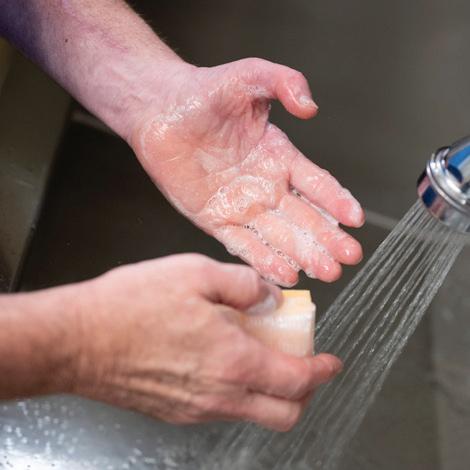
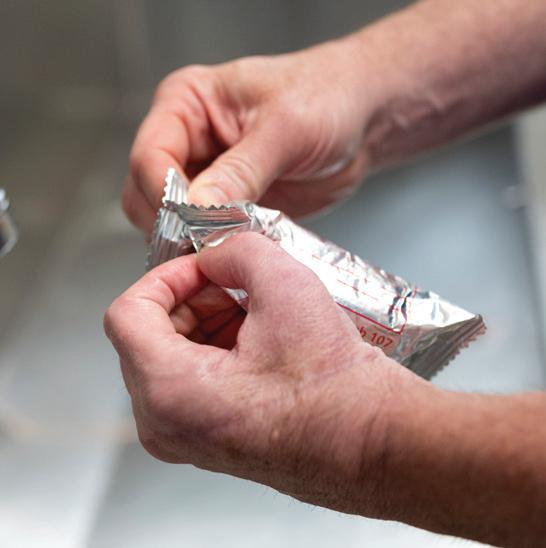

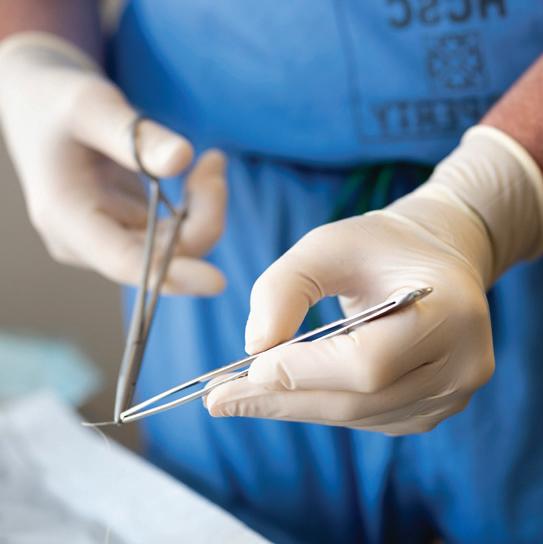
Blood often has trouble reaching injured areas in amounts needed to heal tissue and remove waste products, Dr. Hanlon says. But a method called hyperbaric oxygen (HBO) therapy available at MMC’s Wound Treatment Center can overcome this challenge and speed recovery of damaged tissue. HBO therapy uses pressurized, concentrated oxygen to increase amounts in a patient’s blood. This pushes higher amounts of oxygen into tissues, which promotes the growth of new blood vessels, decreases inflammation and enhances wound healing.
It was a surgeon’s nightmare come true. In October 2020, Randy Shafritz, MD, RPVI, FACS, a vascular surgeon who is Director of Vascular Surgery Services, Southern Region, RWJBarnabas Health, and a member of RWJBarnabas Health Medical Group, suffered a traumatic injury to his left hand while using a miter saw, partially detaching his thumb and index finger.
The injury was potentially devastating for a highly skilled surgeon who depends on his hands. “After I got over the initial shock, the first thing that entered my mind was that my life was never going to be the same,” Dr. Shafritz says. “I thought for sure I was going to lose those two digits.”
Fortunately, enough blood was circulating in the tissue connecting Dr. Shafritz’s thumb and finger to his hand to allow a successful reimplantation of those
“Hyperbaric oxygen therapy helps get around the interrupted vascular supply that can affect grievous wounds as well as traumatic, nonhealing or radiation-related wounds where oxygen delivery may be a problem,” says Dr. Hanlon, who is Medical Director of MMC’s Hyperbaric Medicine Unit. Patients receive the therapy inside a special chamber, typically for 90 minutes five times a week for 20 to 40 sessions, depending on the underlying condition and the patient’s rate of healing.
Dr. Shafritz received HBO therapy, intensive hand therapy and several additional corrective surgeries over the next year with an expert hand surgeon, Ajul Shah, MD, a plastic surgeon who works at many RWJBarnabas Health hospitals.
“Dr. Hanlon and Dr. Shah saved my hand,” says Dr. Shafritz. “They not only allowed me to return to a normal life but also gave me such excellent return of function that I’m now able to operate again.”
“For a surgeon to be able to operate again, with the skill level involved for that occupation, is amazing,” says Dr. Hanlon.
Being a patient with a traumatic injury has been humbling for Dr. Shafritz, who says it has changed his relationship with his patients. “I now look at things more from the patient side,” he says. “It’s less about me and what I can provide and more about them and what they want.”
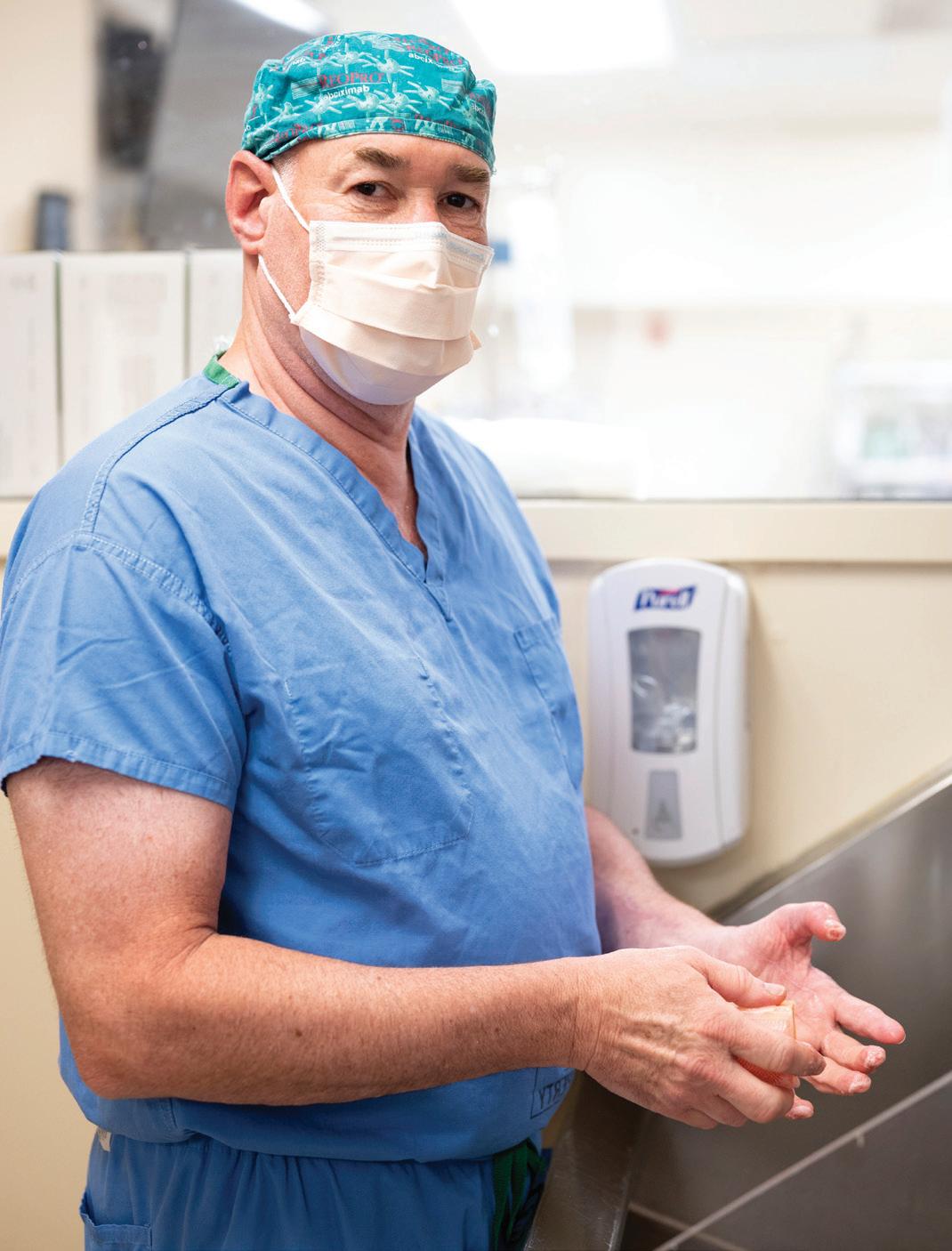
There’s not one secret to a long and healthy life, there are four— and they’re not necessarily secrets. In fact, a new program at Monmouth Medical Center (MMC) specifically addresses them all.
Called Better Health, the program offers free membership to adults 55 and over. “We help engage people and keep them living independently as long as possible by providing programs and events based on the four pillars of healthy living,” says Kelly DeLeon, MS, Manager of Community Health and Social Impact and Community Investment at Monmouth Medical Center Southern Campus (MMCSC). The pillars are:
• Socializing
• Movement
• Nutrition
• Health education
“We’re all familiar with the rockingchair stereotype of older adults sitting on the porch and not doing anything,” says Claire Verruni, RN, CHPN, a nurse in Community Health and Social
Impact and Community Investment at MMCSC. “Our view is that we should encourage people to be all they can be—not pushing beyond their limits but getting out, meeting people, keeping active and learning new things. That’s what healthy aging is all about.”
The Better Health program was piloted in 2015 at MMCSC. “We’ve had great feedback on that program,” says DeLeon. Better Health at MMCSC now has more than 2,000 members, prompting expansion to other RWJBarnabas Health hospitals. Better Health members benefit from:
• EXCLUSIVE EVENTS: Members receive advance notice of programs and events based on the four pillars of healthy aging. Past events have included sessions with a registered dietitian, movement programs such as tai chi, yoga and Zumba Gold, and luncheons with physicians and other guest speakers.
The LiveWell Center at the newly opened Anne Vogel Family Care &
A state-of-the-art demonstration kitchen is among the venues for new Better Health programs at the Anne Vogel Family Care & Wellness Center’s LiveWell Center.
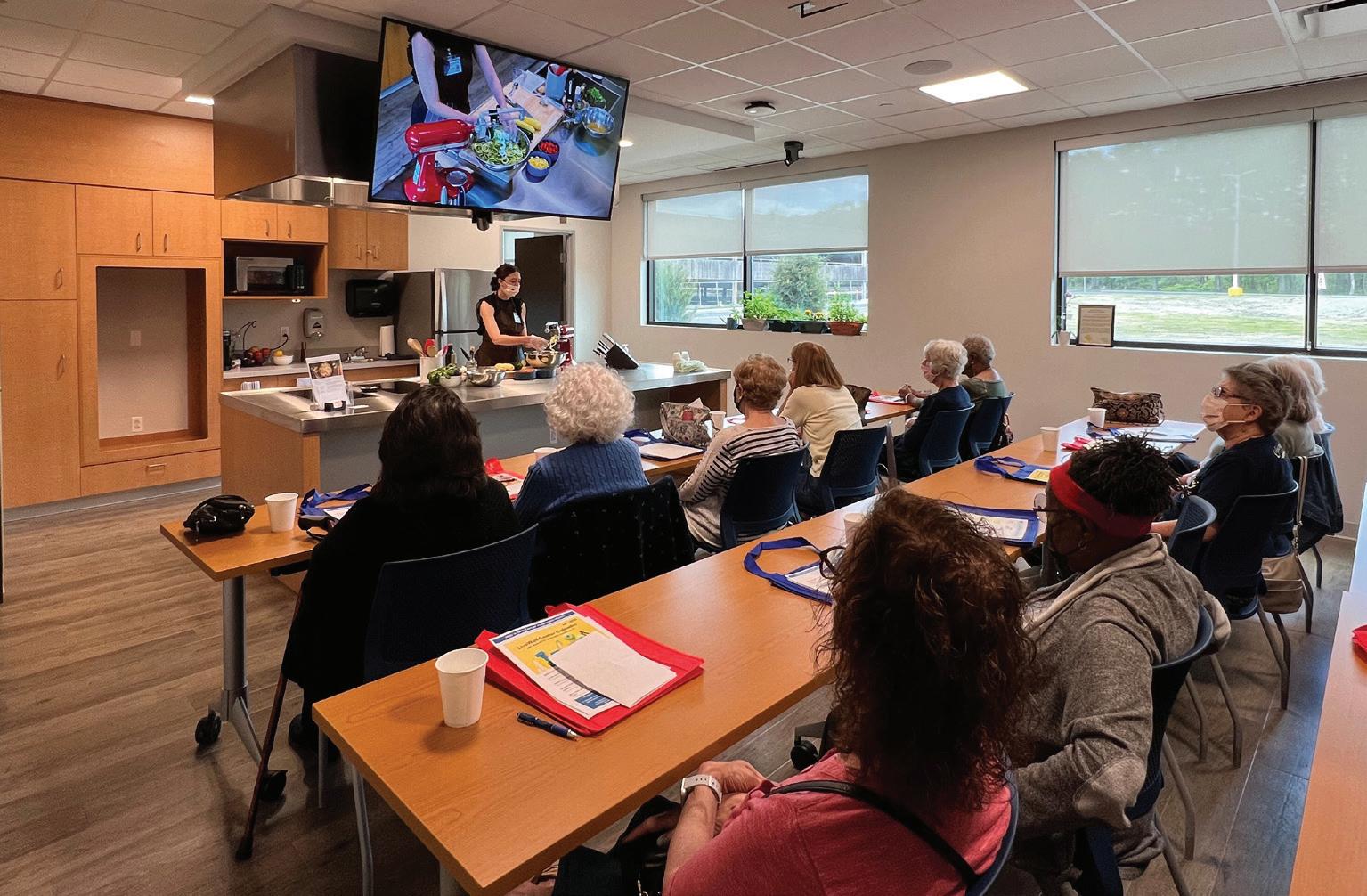
Wellness Center in Eatontown has become the home for on-site Better Health events. Upcoming programs include exploring sexual health and intimacy after 60 and the keys to longevity; movement programs on balance and yoga drumming; support groups; and events with clinical specialists and physicians that address chronic disease.
Members who want to focus on nutrition can dive into topics including weight management; heart-healthy diets; plant-based recipes; and cooking once and eating twice at the LiveWell Center’s WEforum Demonstration Kitchen. “We want to make healthy eating easy as our lives and nutritional needs change,” says Jennifer Klein, MS, RDN, Registered Dietitian Nutritionist, LiveWell Center.
• HEALTH COACHES: DeLeon and Verruni help members navigate the sometimes-challenging healthcare system, answer health-related questions, find physicians, schedule healthcare appointments and even arrange transportation as needed.
• PARKING: Members enjoy valet parking at MMC and the Anne Vogel Family Care & Wellness Center, as well as preferred parking at MMCSC.
• DISCOUNTS: Better Health offers members discounts of 10 percent at the hospital gift shop and 20 percent in the hospital cafeteria.
• RECOGNITION: In the event that a participant visits the hospital for care, a “BHM” notation on their wristband identifies them as a Better Health member. This alerts the health coaches of a member’s visit and prompts followup.
“We keep a close eye on our members,” DeLeon says. “Our ultimate goal is to see people stay well and healthy, and far outside the walls of our hospitals. But if a member comes in for care, we are here for them.”










M elissa Mazurek of Flemington was just 39 when she received a daunting diagnosis: She had stage 3A breast cancer, a designation that meant her cancer had spread to multiple lymph nodes.
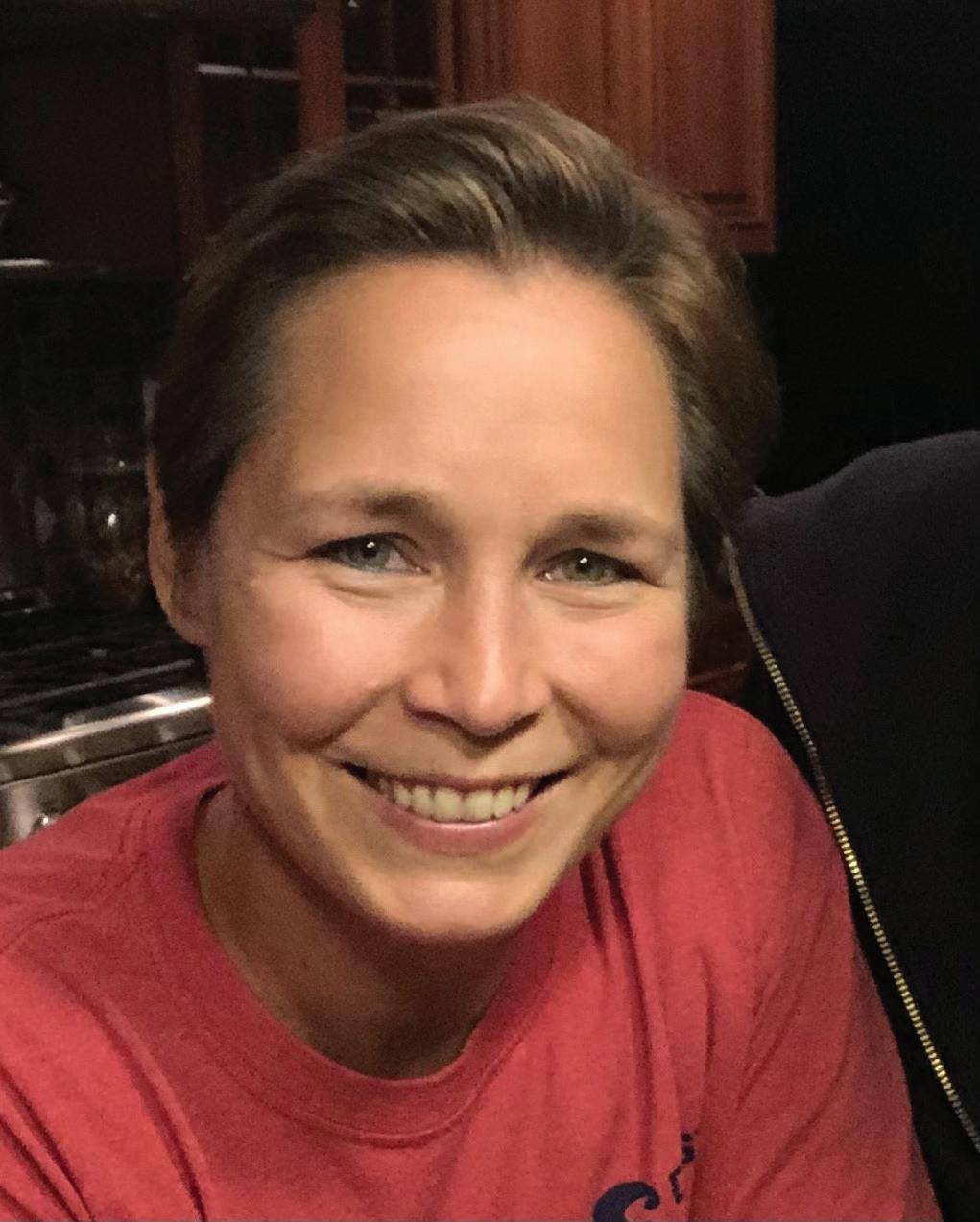
As part of her treatment, doctors surgically removed not only her breast tumor, but also 40 lymph nodes, many of them cancerous. They also explained that her surgery, along with chemotherapy and radiation treatments, increased her risk of developing breast cancer-related lymphedema.
Lymphedema, a chronic condition experienced by many breast cancer survivors, can occur when lymph nodes are removed. Lymph nodes play a role in draining fluids from the body, and removing them can disrupt that process, causing a buildup of lymphatic fluid in the limbs.
“If untreated, this can lead to swelling and enlargement of the arm, heaviness and disability,” says Manpreet K. Kohli, MD, Director of Breast Surgery and Breast Program Leader at Monmouth Medical Center (MMC) and a member of RWJBarnabas Health Medical Group.
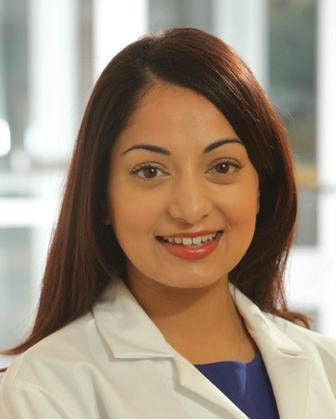
But lymphedema is reversible if detected and treated early. Mazurek understood that regularly monitoring for lymphedema was essential to finding and forestalling the condition as she recovered. “Side effects of surgery, chemotherapy and radiation are already challenging to manage,” she says. “Lymphedema would be like adding insult to injury.”
Melissa Mazurek’s lymphedema has been closely tracked and controlled with help from a new technology.

For many years, the only way to detect lymphedema was to compare the circumferences of a patient’s arms and legs with a tape measure. If one arm or leg was growing larger than the other, it could be a sign of lymphedema. But these measurements are not always precise.
Dr. Kohli told Mazurek about a new, more accurate way to diagnose lymphedema. A procedure called bioimpedance spectroscopy (BIS) can detect small fluid-volume changes in a patient’s body. The patient stands on a console as a machine releases a painless electric current and measures the body’s response. BIS is less time-consuming than tape measurements and can detect as little as two tablespoons of extra fluid volume.
Shortly after Dr. Kohli’s conversation with Mazurek, MMC received its first BIS machine. MMC has the only lymphedema prevention program in New Jersey offering this gamechanging technology. “It allows us to be proactive in trying to identify lymphedema before it’s evident to the patient,” Dr. Kohli says.
BIS played an important role in Mazurek’s follow-up appointments to monitor for lymphedema. “Despite her being so high-risk for lymphedema, we have kept it at bay with this technology,” Dr. Kohli says. Six years after her treatment, Mazurek is cancer-free and far less likely to develop lymphedema.
For Mazurek, the experience has emphasized the importance of preventive care. “There’s always room for improvement, but at least I have more tomorrows,” she says. “I have my breast cancer team at MMC to thank for that.”
Jing-Jou Yen knew for 20 years that he had an abnormal aortic valve, which controls blood flow through a major artery.
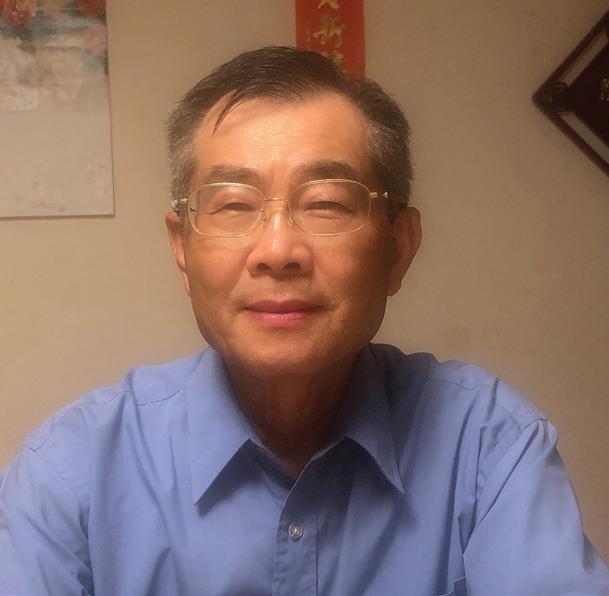
Doctors told the 68-year-old Marlboro resident that he’d one day have to replace the valve.
In 2021, tests indicated the time had come: He’d developed severe aortic stenosis, a condition that makes it difficult for the heart to supply the body with blood. “This was a critical surgery and unknown territory for me and my family,” Yen says.
He wasn’t sure where to turn. Then he learned that Monmouth Medical Center (MMC), with numerous other hospitals in the RWJBarnabas Health (RWJBH) system, has a Chinese Medical Program (CMP). The program helped him find Mark J. Russo, MD, Chief of the Division of Cardiac Surgery at Robert Wood Johnson University Hospital (RWJUH) in New Brunswick and a member of RWJBarnabas Health Medical Group, who replaced Yen’s valve in December 2021.
“The Chinese Medical Program helped me coordinate schedules and get all the necessary lab testing before surgery, and even came to see me during my five-day stay in the hospital,” Yen says. The program also referred him to Isaac Tawfik, MD, Chief of Cardiology at MMC, also a member of RWJBarnabas Health Medical Group, for follow-up care. “From pre-surgery to postsurgery, the CMP has been a great asset,” Yen says.
The CMP aims to be a patient-centered, family-oriented and culturally specific program. “We speak the patient’s language and act
as a bridge between the patient and the hospital,” says Stephanie Zou, Regional Director, Community Specific Medical Program, MMC, and Patient Navigator. The program facilitates access to inpatient and outpatient services and provides navigation, translation, transportation, scheduling, free screenings, community education, weekend outreach events and prevention programs. It can also help with telemedicine appointments that connect patients with doctors using video technology. “Our unique one-stop service provides ethnic patients more than just convenience,” says Zou. “It also provides cultural support and builds trust to bridge gaps in care so patients no longer hesitate to seek help for their medical needs.”
Multilingual CMP staffers are fluent in Mandarin, Cantonese, Toishanese, Fukienese and other Chinese dialects. The program also welcomes people of Chinese ancestry who don’t require interpretation services but need to find specialists and surgeons.
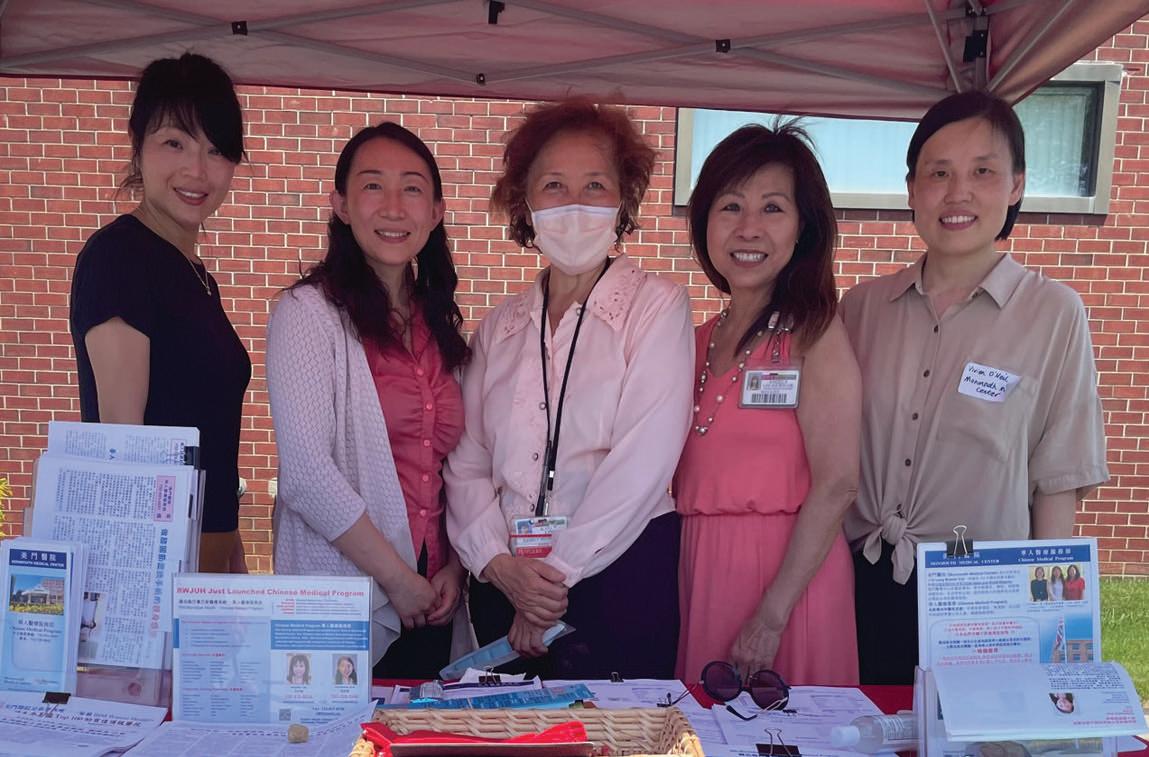
“We serve everyone from newborns to seniors, from annual checkups to advance surgeries, from physical therapy to chemotherapy,” says Zou. “We are different from the language line that just provides onetime interpretation; instead, we accompany patients throughout their journey to all specialists’ offices and hospital departments. In many cases, we spend years with patients for all their medical needs. Some patients have been with us more than 11 years.”
The pioneering CMP first launched in October 2010 at MMC, initiated by Shirley Hwang, Senior Vice President of Business Development, RWJBH Southern Region and RWJUH. The MMC program has assisted more than 11,800 patients at MMC and Monmouth Medical Center Southern Campus since its inception. Similar programs have been created for Russian and Indian populations. With the support of Hwang and Michael Perdoni, Vice President of Clinical Operations at MMC, the CMP has gone regional and now provides crosscoverage support for teams at other hospital sites, including RWJUH Hamilton and RWJUH Somerset.
“Should anyone find themselves in a similar situation as I did, I would highly encourage them to reach out to the CMP,” Yen says. “It can help ease worries in a nerve-wracking time.”
Representing RWJBarnabas Health hospitals that have a Chinese Medical Program (CMP) at an Asian-heritage community event are (from left) Joanne Chan, CMP Coordinator, Robert Wood Johnson University Hospital (RWJUH) Somerset; Stephanie Zou, Regional Director, Community Specific Medical Program, Monmouth Medical Center (MMC) and RWJUH in New Brunswick; Karen Lin, MD, Professor of Family Medicine and Community Health and Assistant Director, Family Medicine Residency Program, Robert Wood Johnson Medical School; Angela CMP Manager, RWJUH in New Brunswick; and Vivien O’Neil, CMP Manager, MMC.




Monmouth
The



